Coronavirus may linger on in the most disadvantaged parts of British society long after social distancing and testing measures have driven it out of the mainstream, a leading government scientist has warned.
Dame Angela McLean, the Ministry of Defence’s chief scientific adviser, said that even after lockdown has been lifted and infection numbers have subsided, the virus could find a haven among the most “hard to reach” people – often taken to include the homeless, long-term benefit claimants and migrant workers.
The authorities will have a responsibility to carry on hunting down pockets of infection in “every part of our society”, she said.
Download the new Independent Premium app
Sharing the full story, not just the headlines
Dame Angela was speaking just moments after first secretary of state Dominic Raab told the daily Downing Street press conference that Boris Johnson’s recent illness showed that coronavirus “doesn’t discriminate”.
Standing alongside Mr Raab in No 10, Dame Angela took a markedly different tone: “Infectious diseases always do and always will target the disadvantaged.
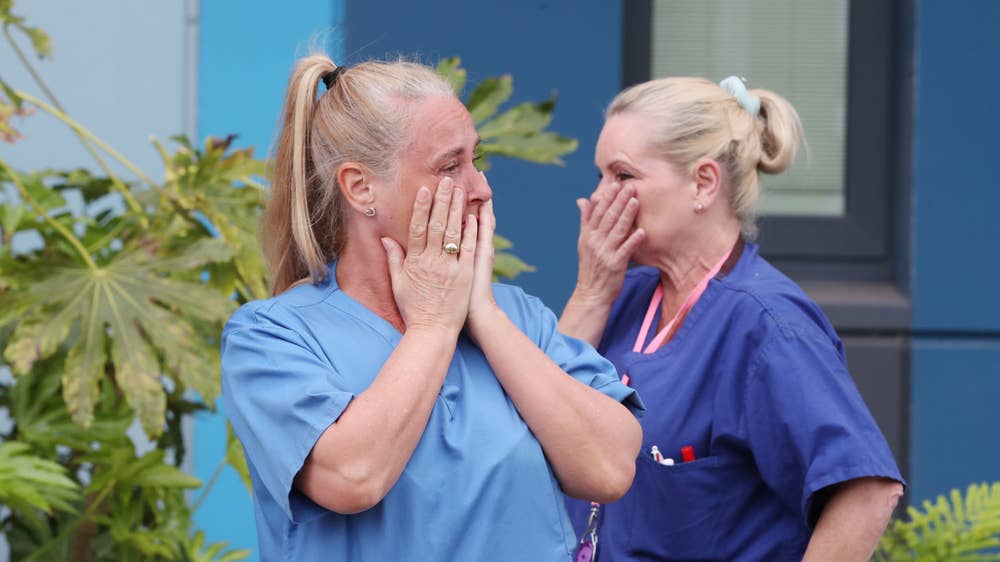
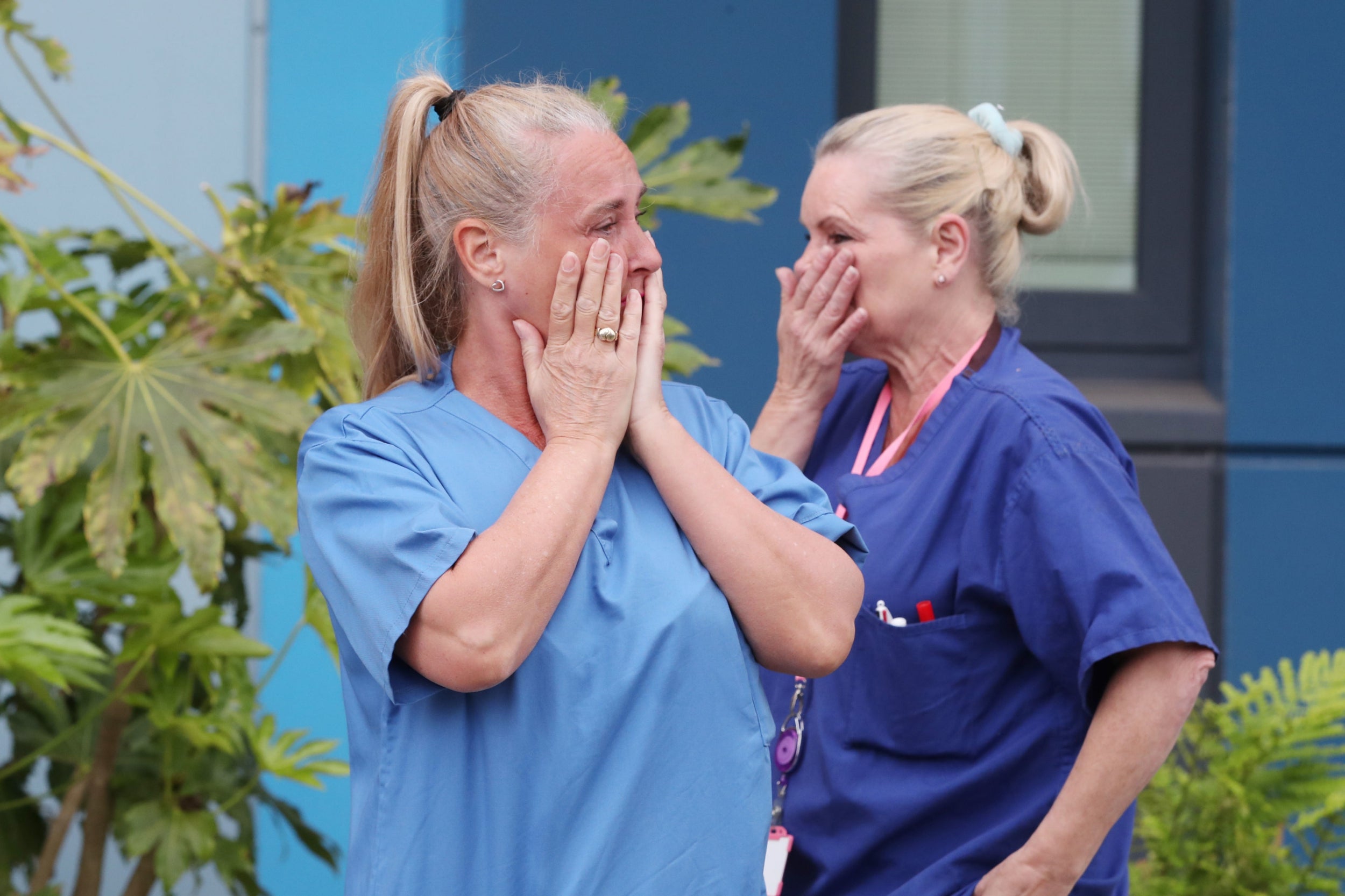
1/30
Staff react outside Salford Royal Hospital in Manchester during a minute’s silence to pay tribute to the NHS staff and key workers who have died during the coronavirus outbreak
PA
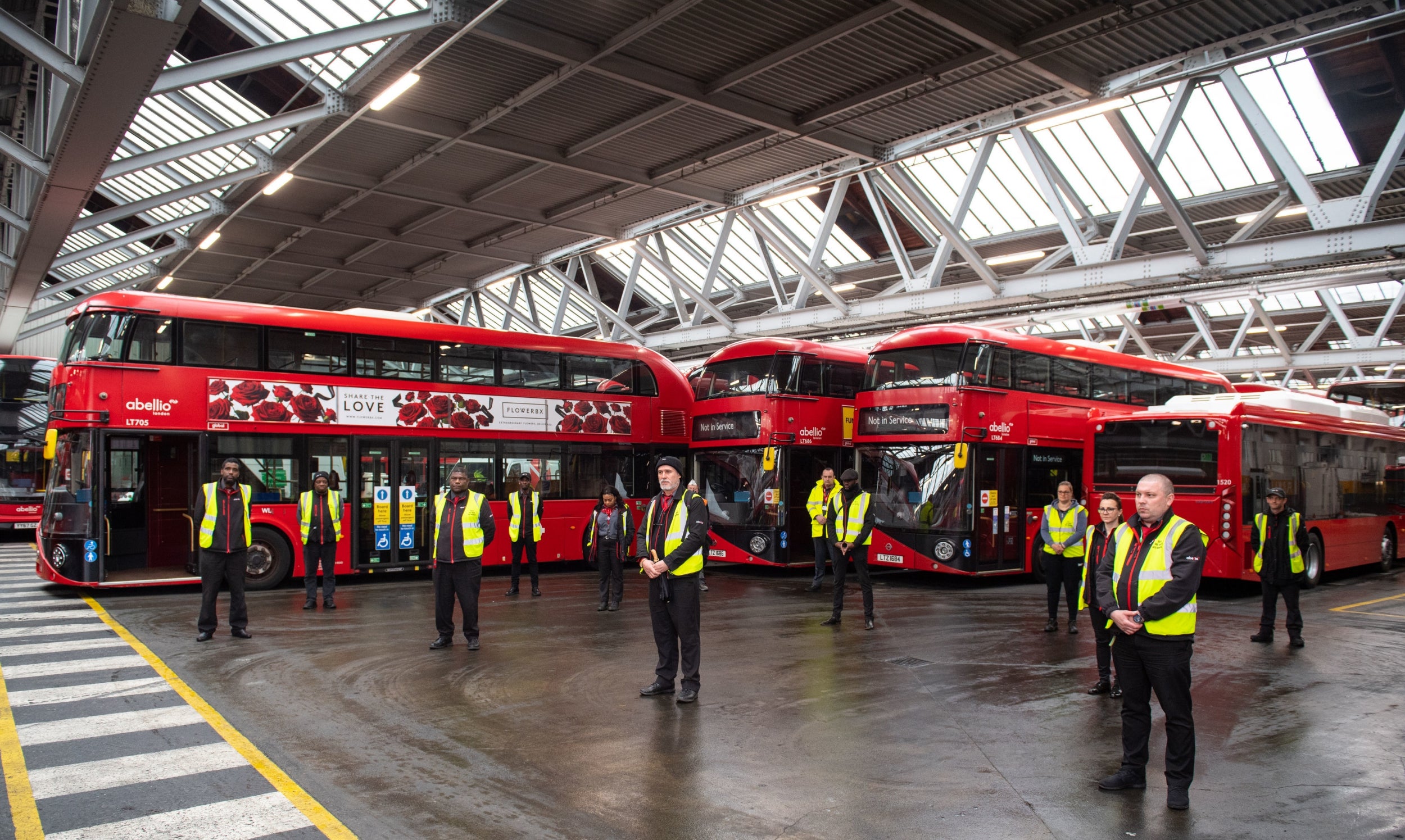
2/30
Staff inside Camberwell bus depot in London, during a minute’s silence
PA
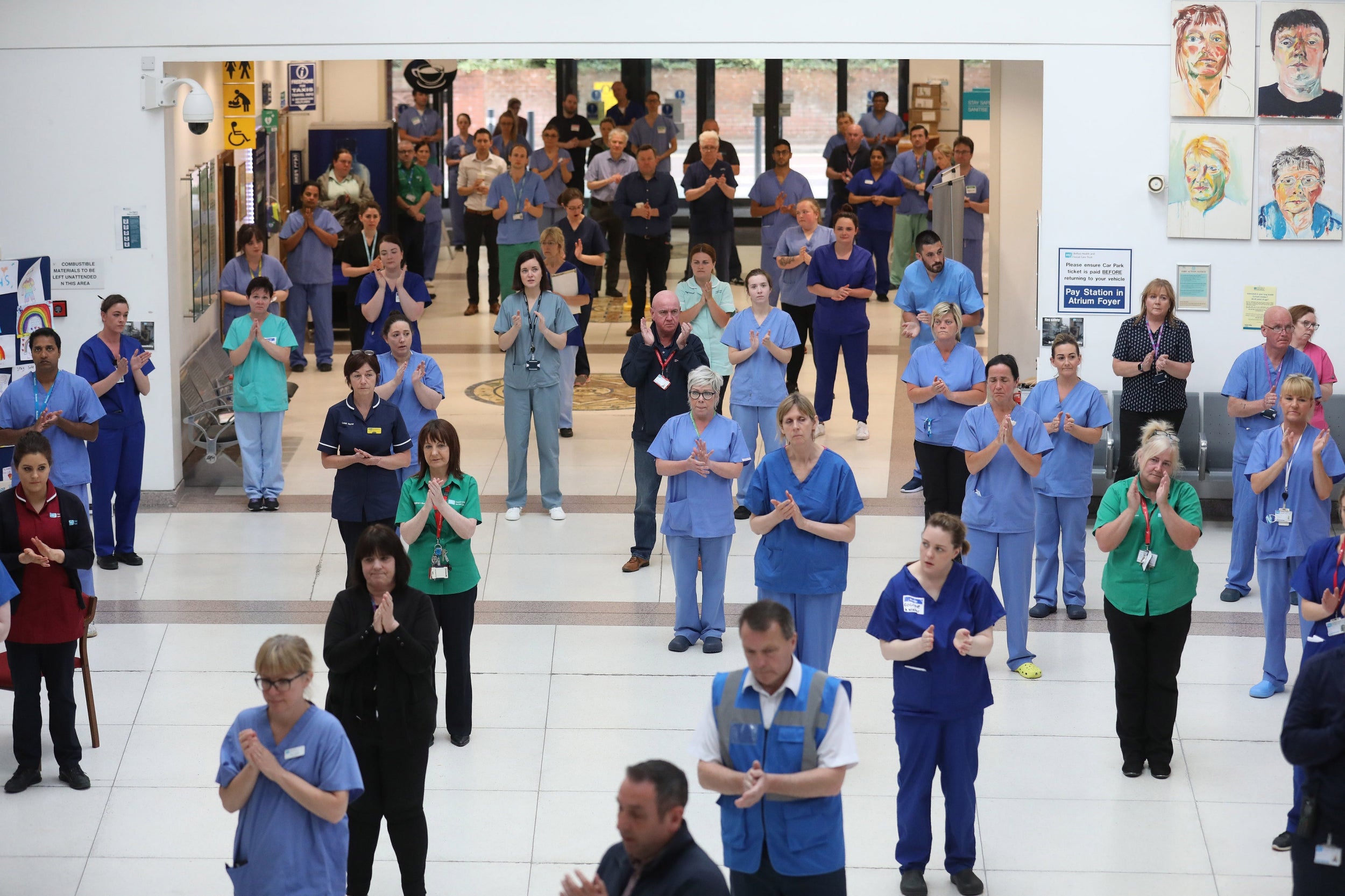
3/30
NHS staff at the Mater hospital in Belfast, during a minute’s silence to pay tribute to the NHS staff and key workers who have died during the coronavirus outbreak.
PA
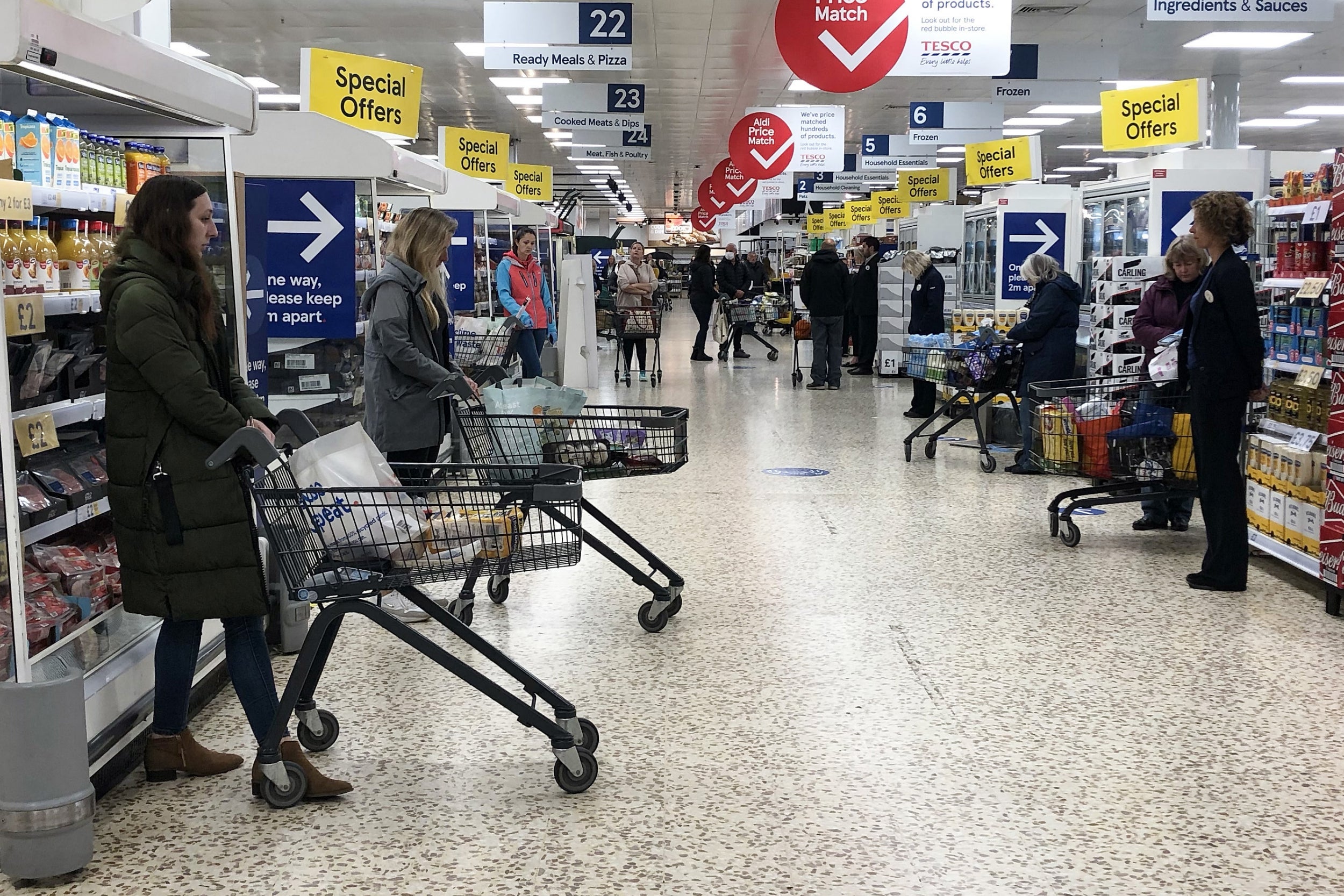
4/30
Shoppers observe a minute’s silence in Tescos in Shoreham
Getty
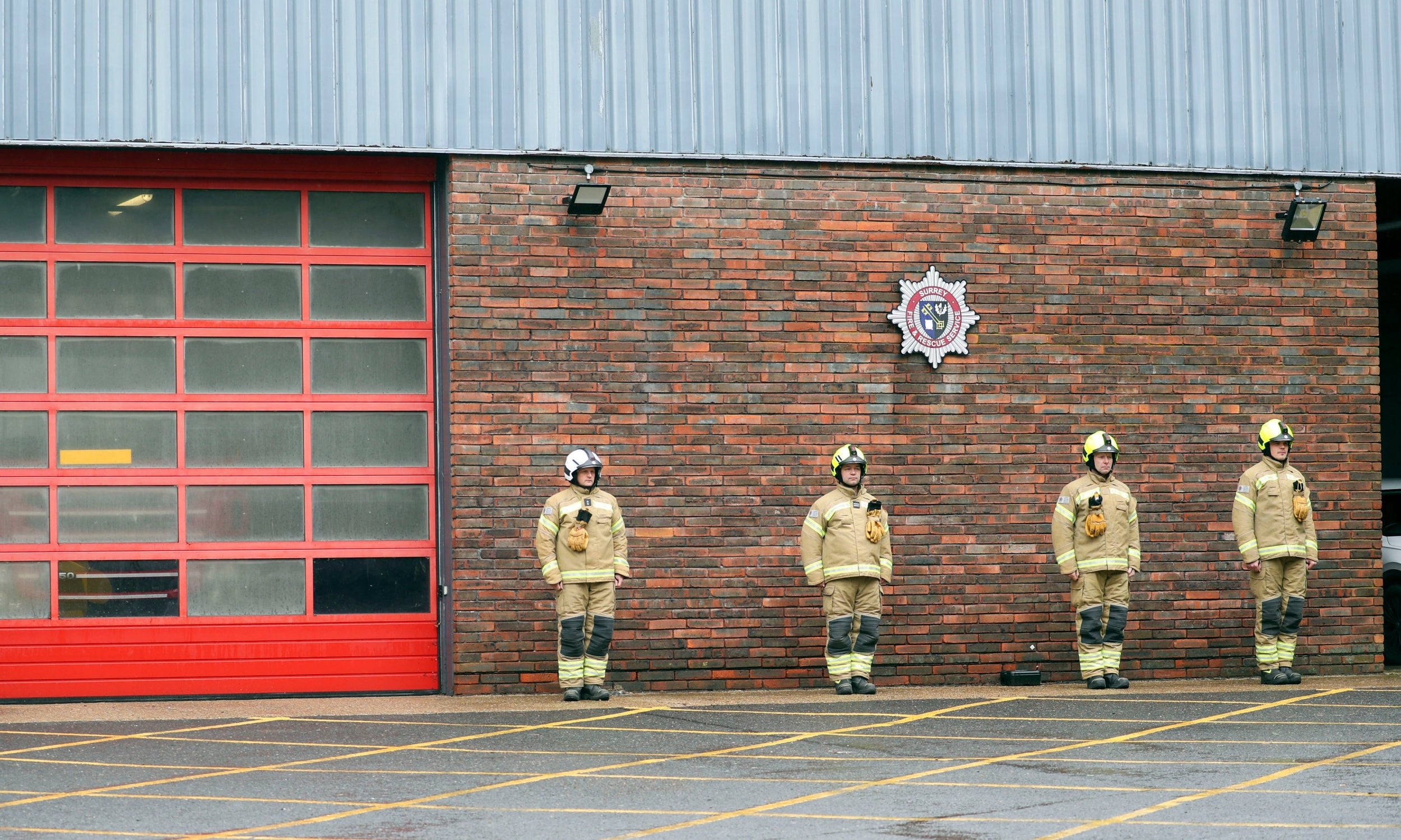
5/30
Firefighters outside Godstone fire station
PA
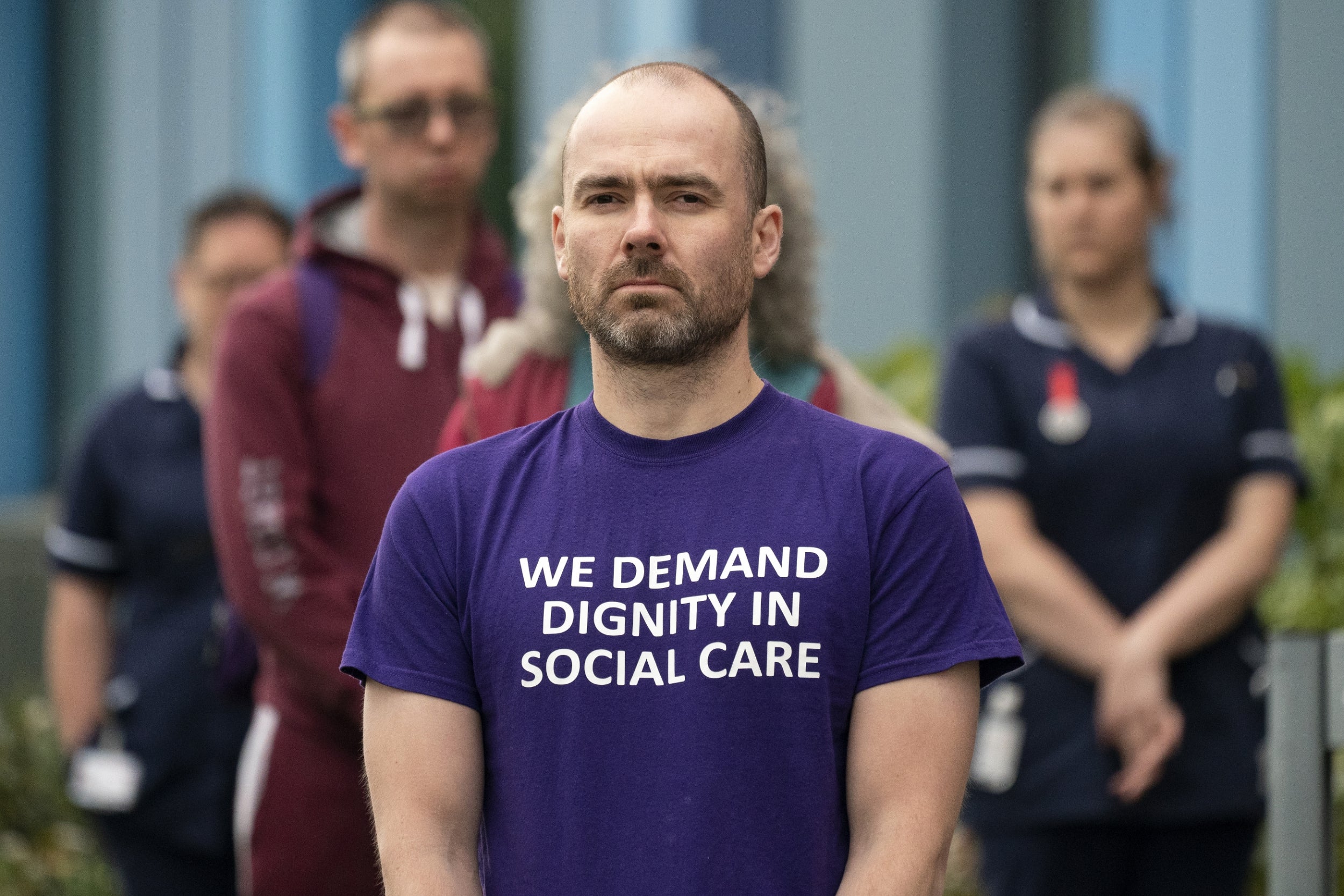
6/30 Salford Royal Hospital
Getty
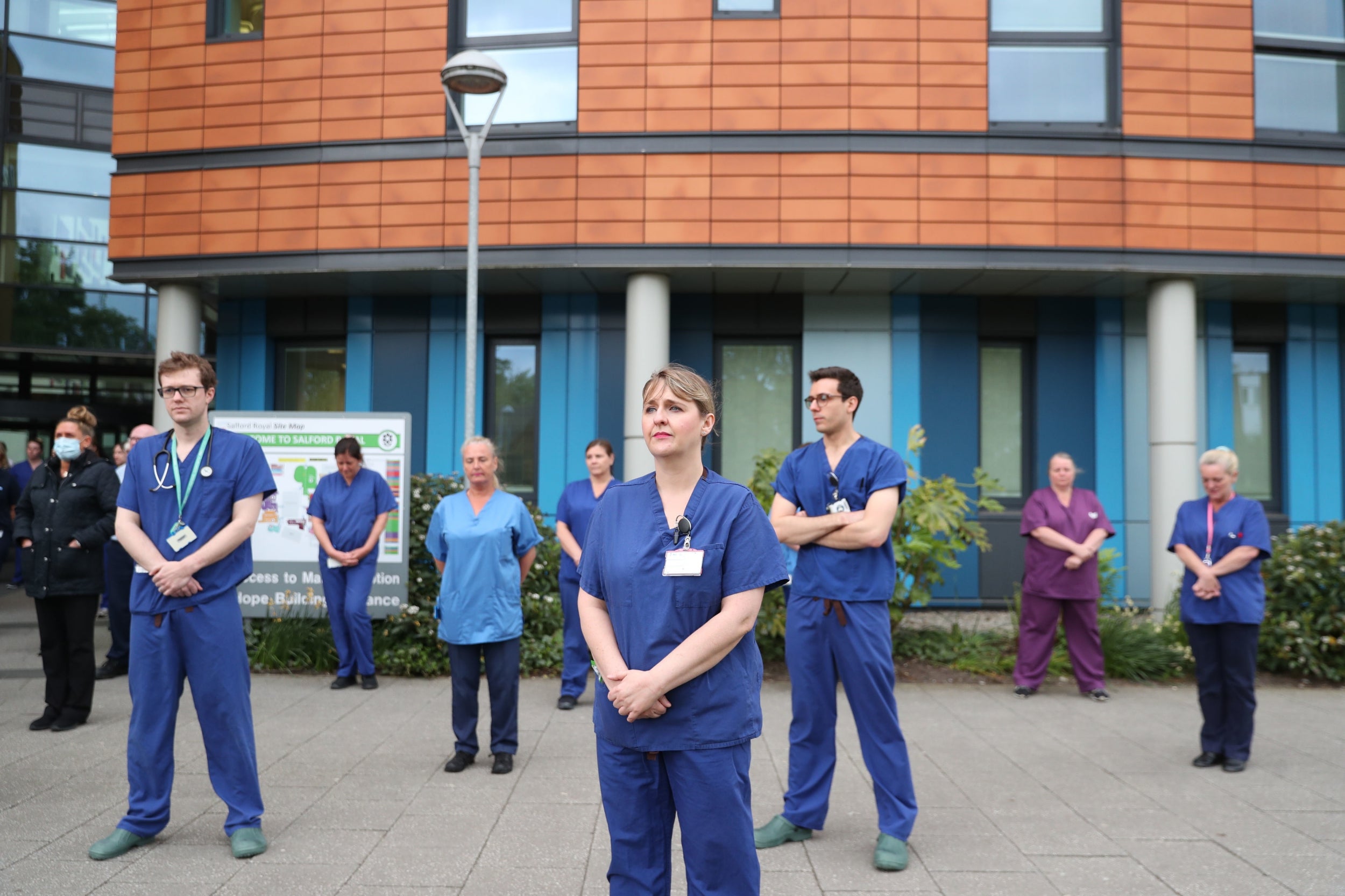
7/30 Salford Royal Hospital
PA
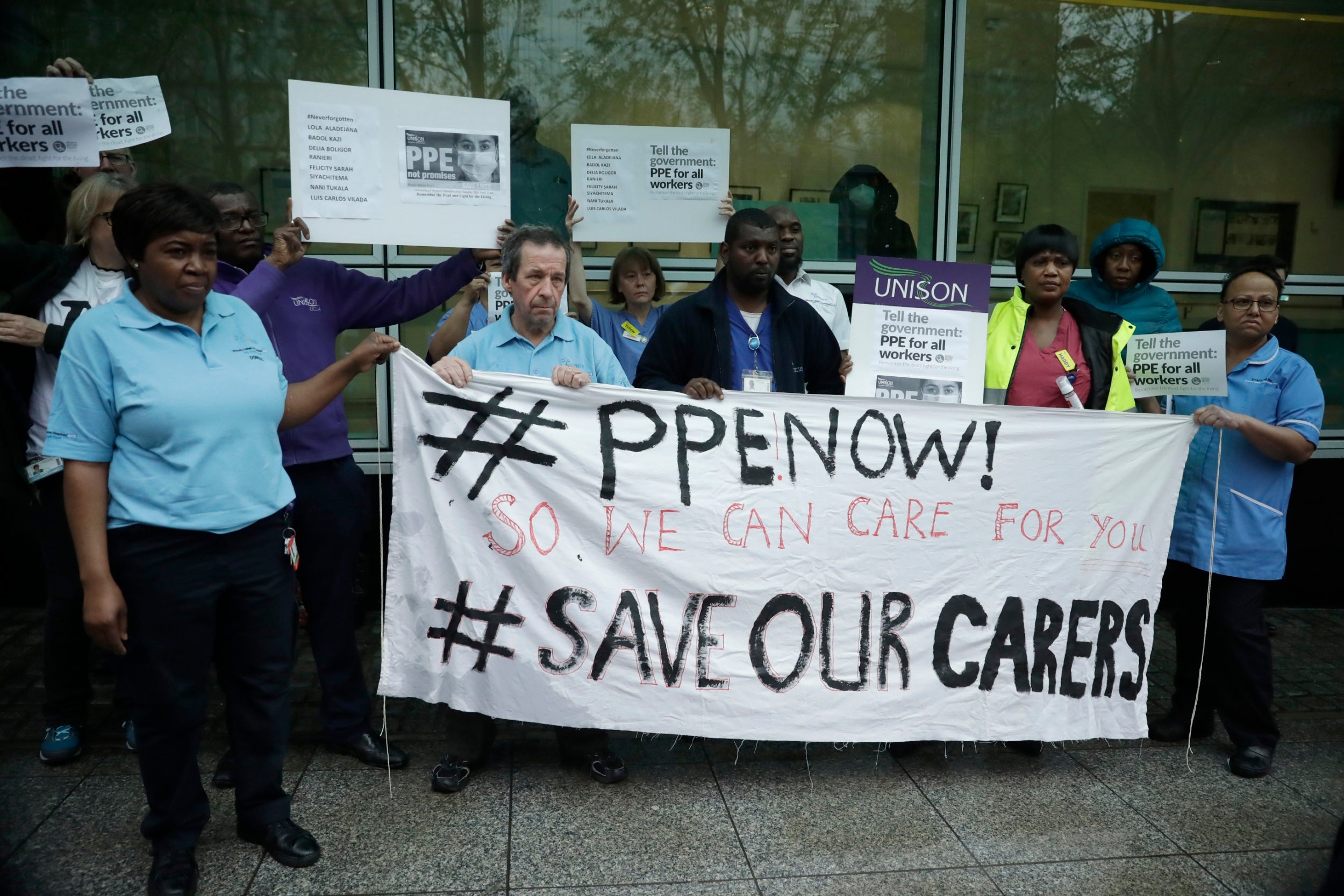
8/30
Hospital workers take part in a protest calling on the British government to provide PPE across Britain for all workers in care, the NHS and other vital public services after a nationwide minute’s silence at University College Hospital in London
AP
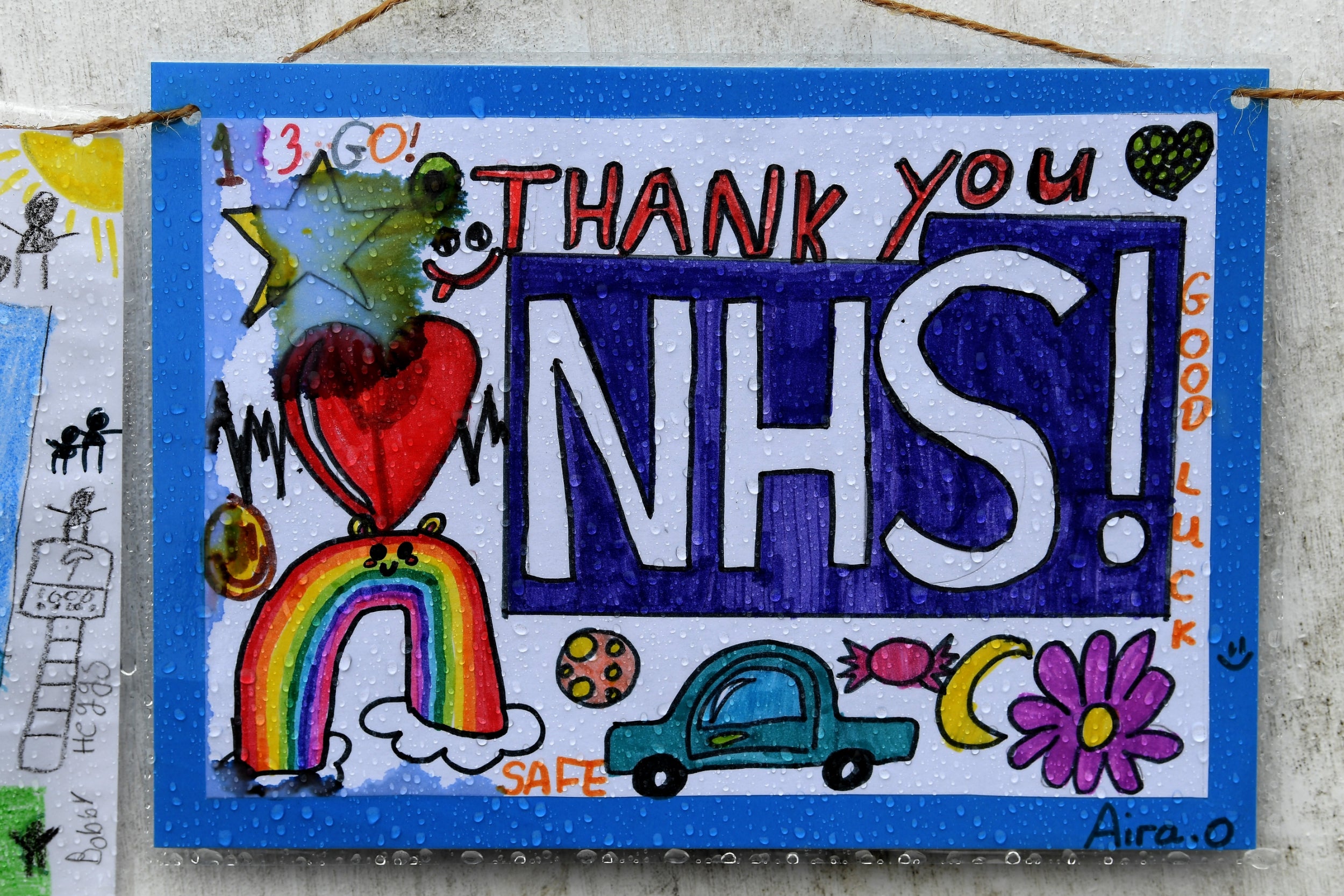
9/30
A school children’s poster hanging outside Glenfield Hospital during a minute’s silence
Getty
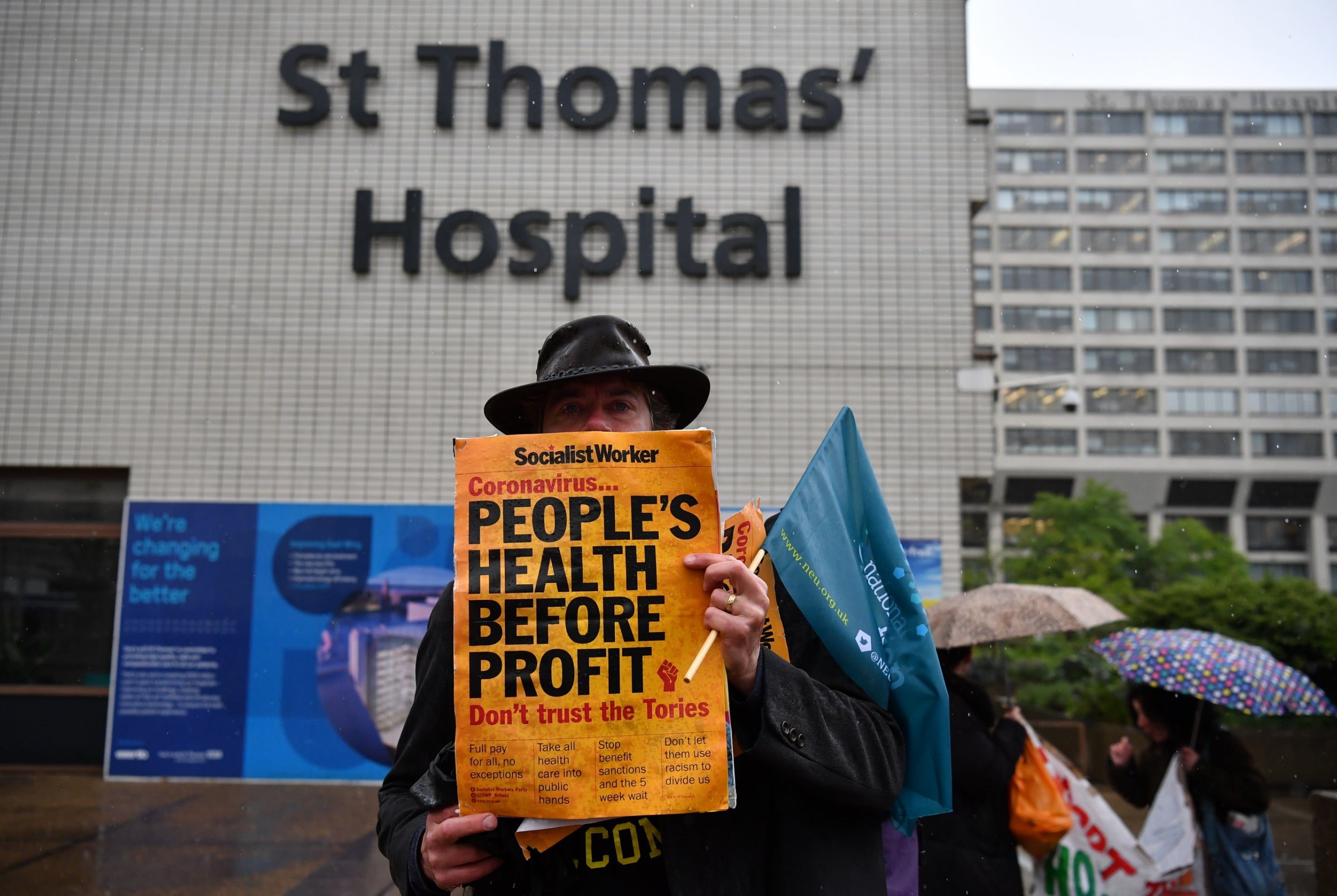
10/30
A man holds a placard that reads “People’s health before profit” outside St Thomas hospital
Getty
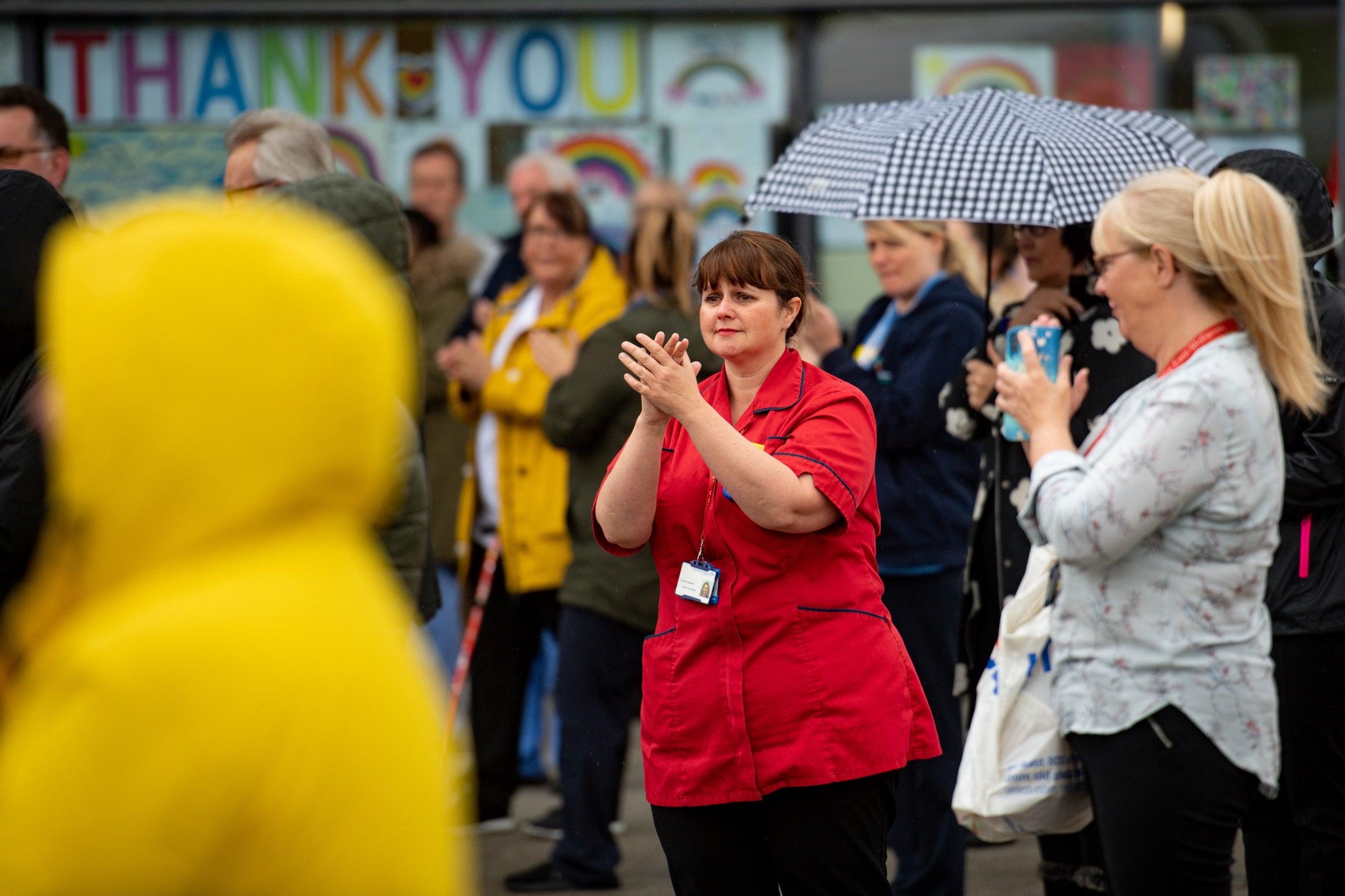
11/30
Staff members applaud outside the Royal Derby Hospital, following a minute’s silence
PA
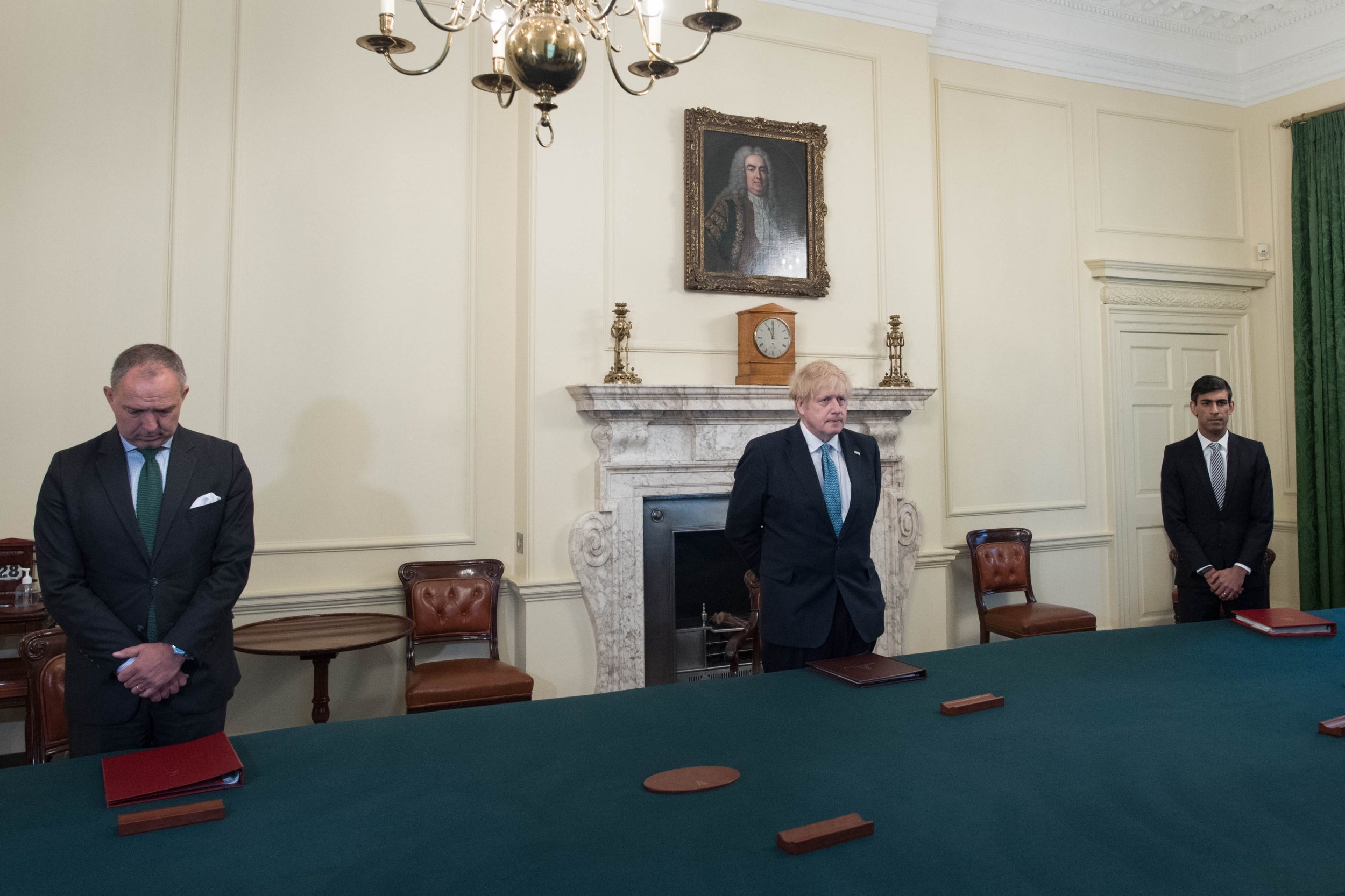
12/30
Cabinet Secretary Mark Sedwill, Prime minister Boris Johnson and Chancellor of the Exchequer Rishi Sunak, stand inside 10 Downing Street, London, to observe a minutes silence in tribute to the NHS staff and key workers who have died during the coronavirus outbreak
PA
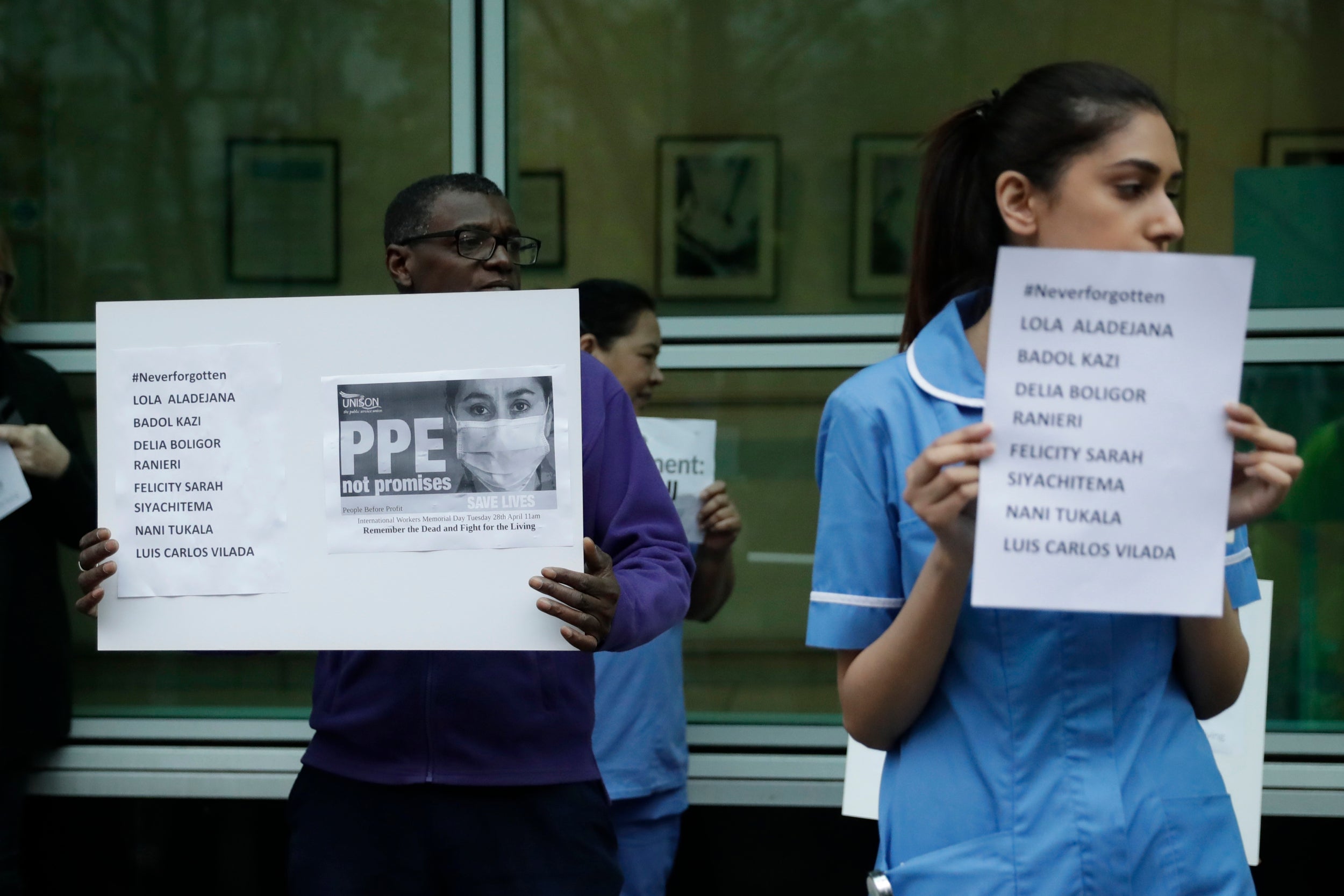
13/30 University College Hospital, London
Hospital workers hold placards with the names of their colleagues who have died from coronavirus as they take part in a protest calling on the British government to provide PPE
AP
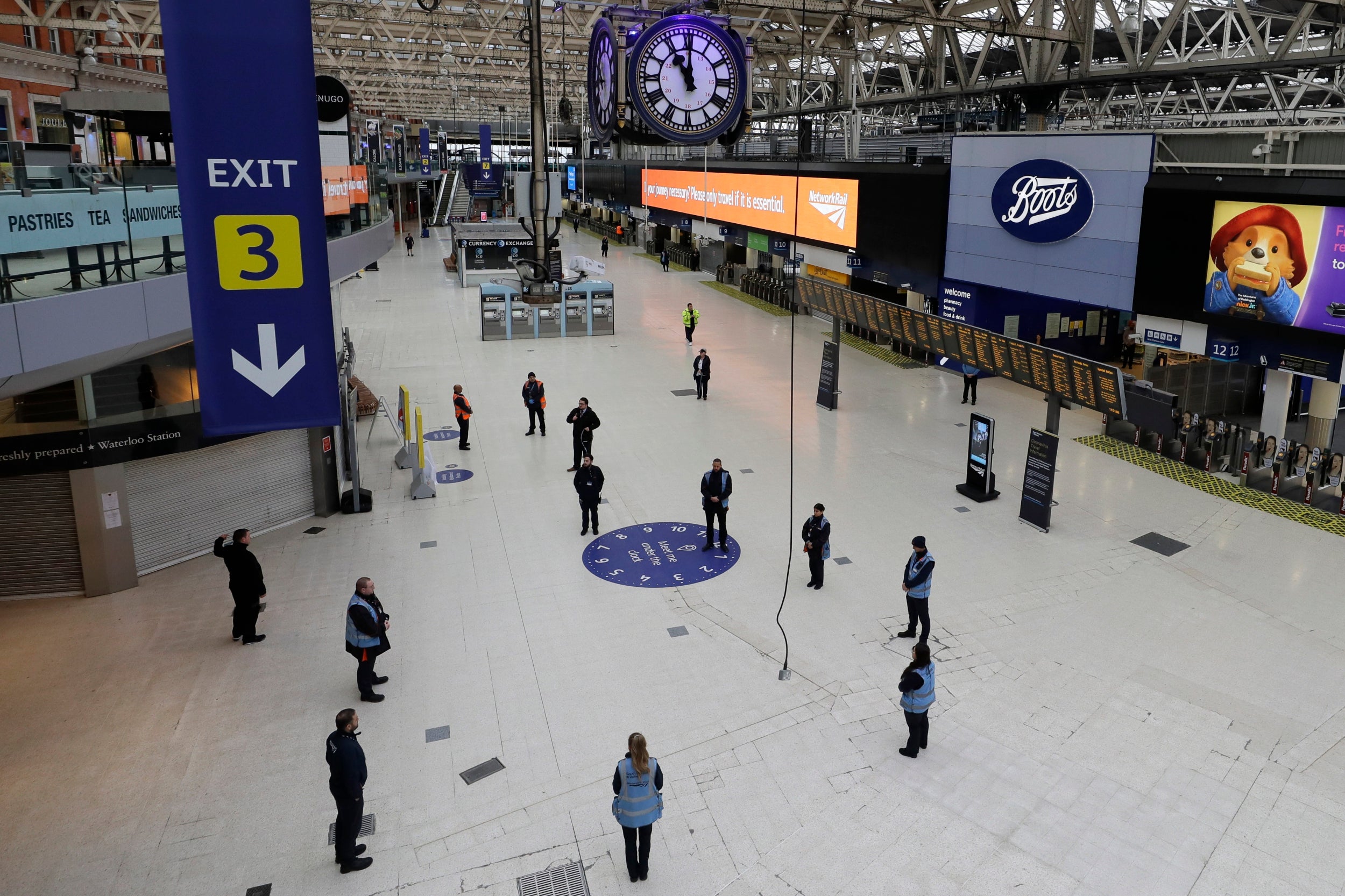
14/30
Staff at Waterloo Station in London, stand to observe a minute’s silence, to pay tribute to NHS and key workers who have died with coronavirus
AP
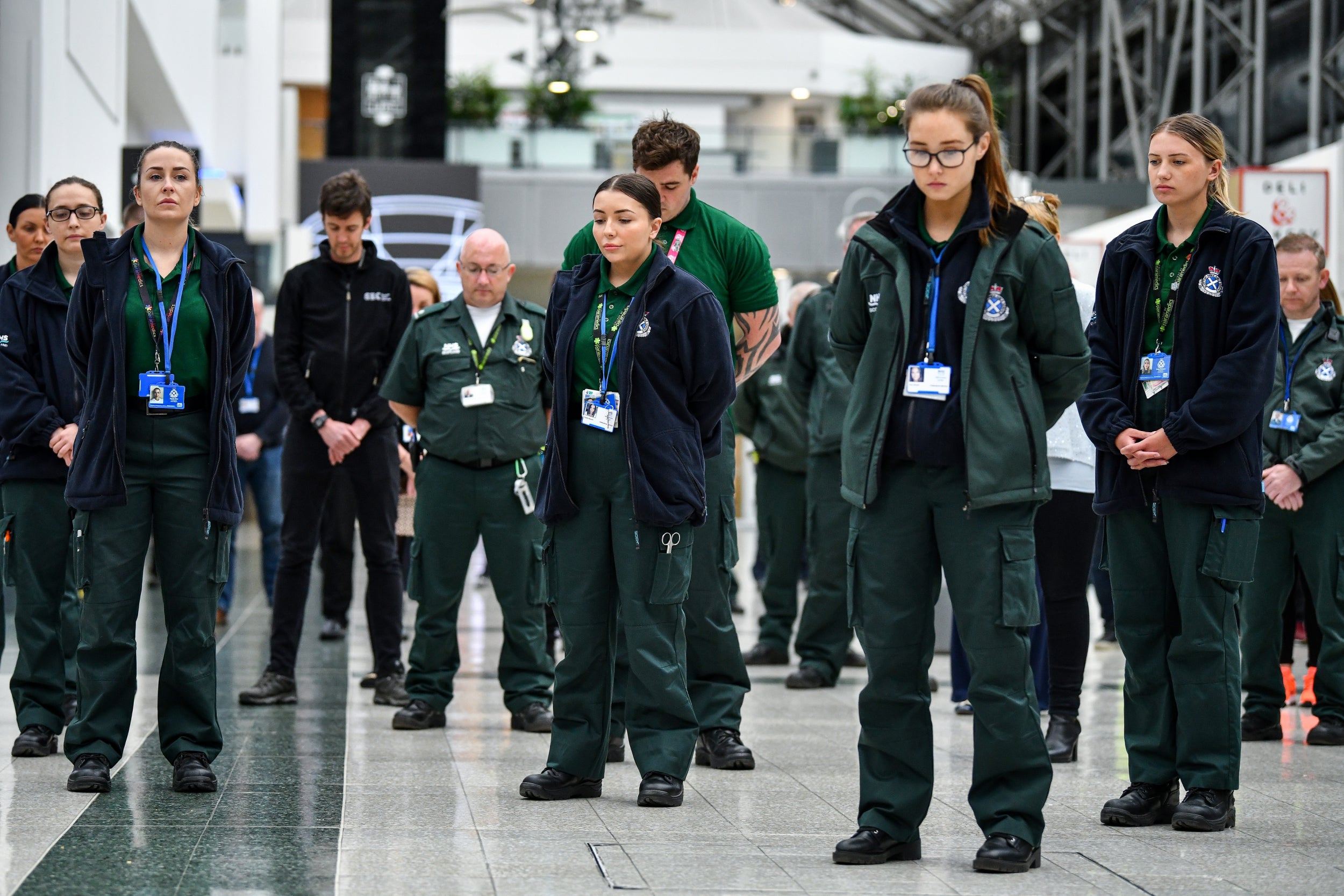
15/30
Medical staff at the Louisa Jordan hospital stand during a UK wide minutes silence to commemorate the key workers who have died with coronavirus in Glasgow
Getty
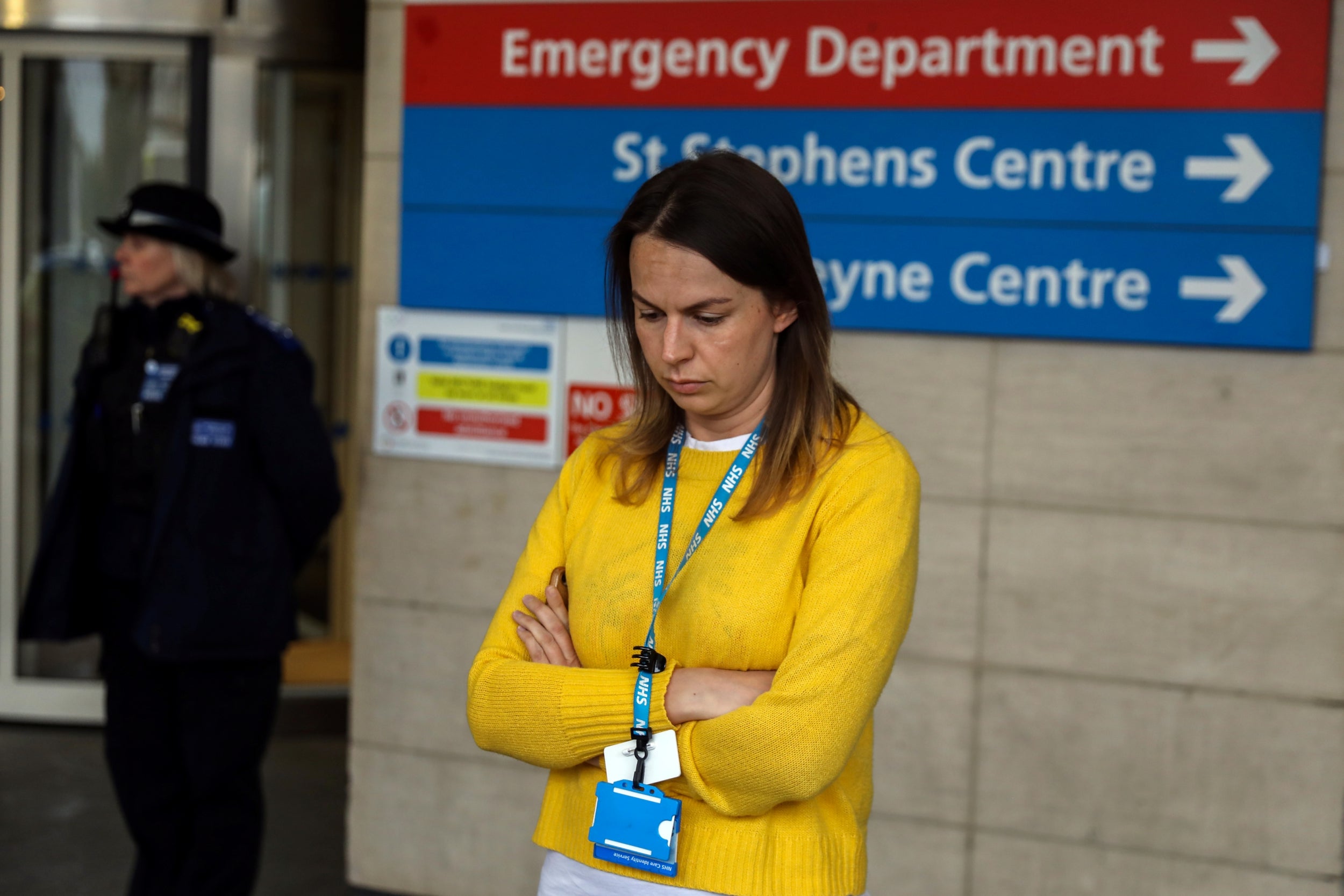
16/30 London
An NHS worker observes a minute’s silence at Chelsea and Westminster Hospital
Reuters
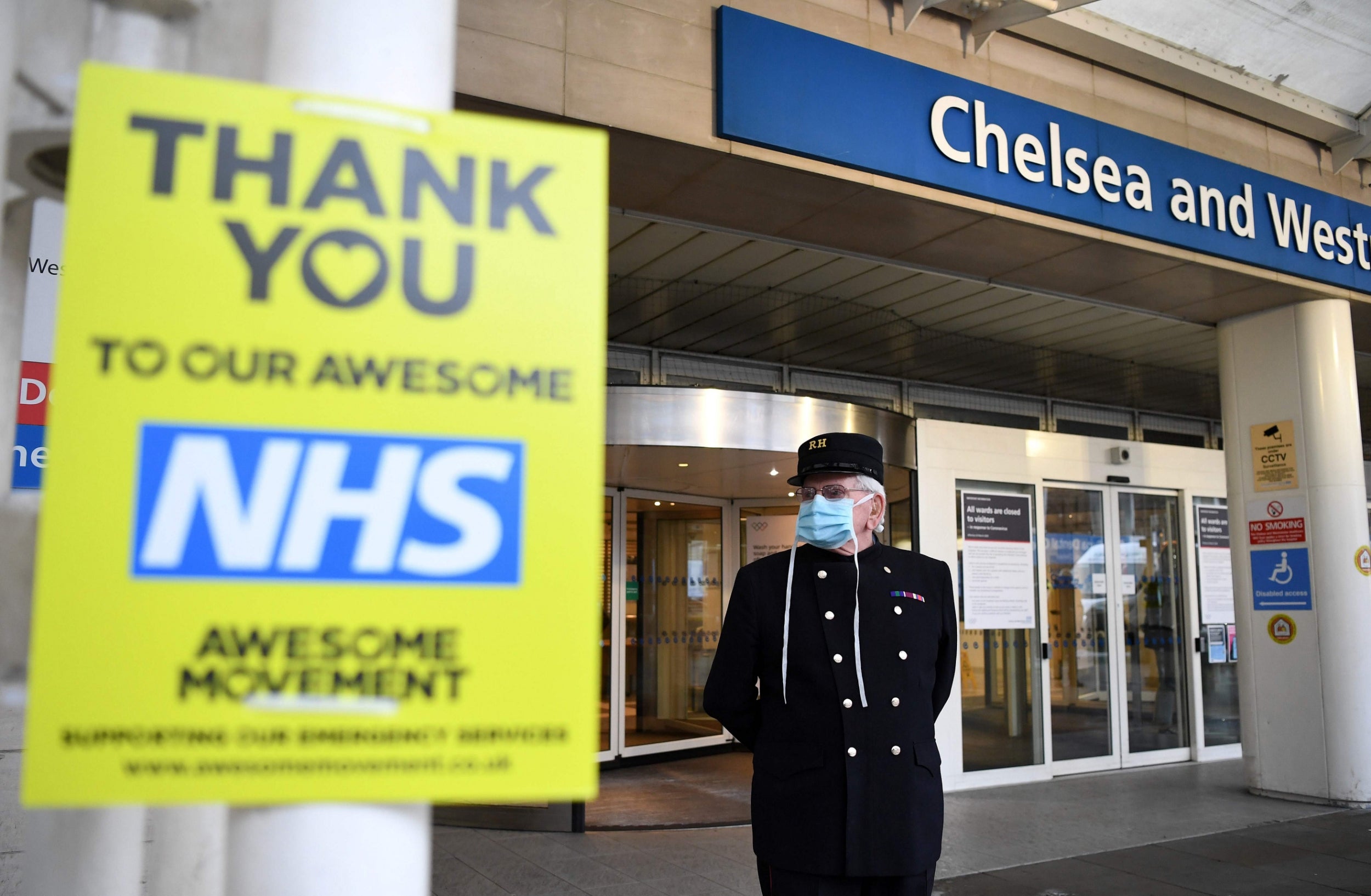
17/30 Chelsea and Westminster Hospital in London
AFP via Getty
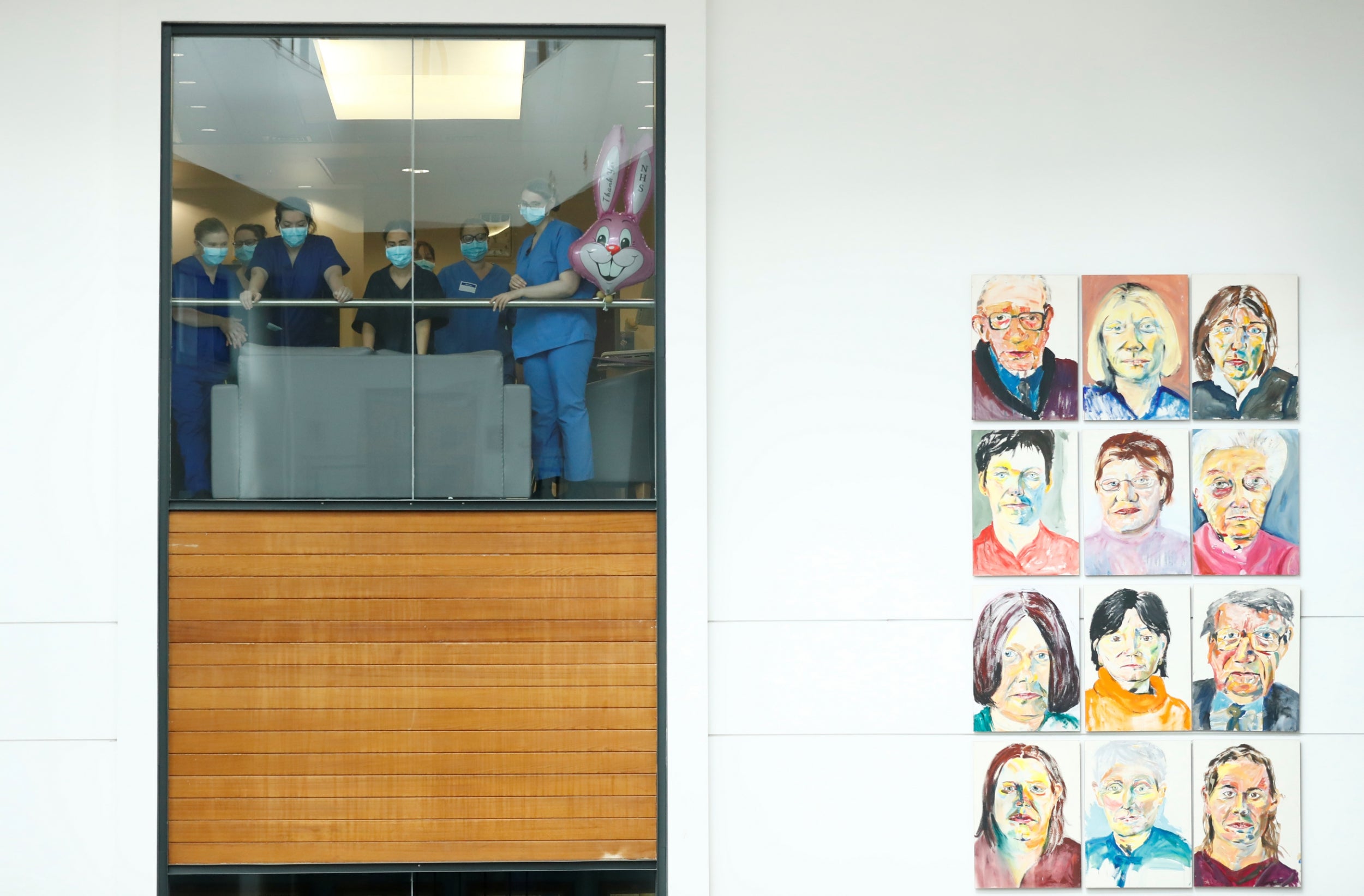
18/30 Belfast, Northern Ireland
NHS staff observe a minutes silence at Mater Infirmorum Hospital
Reuters
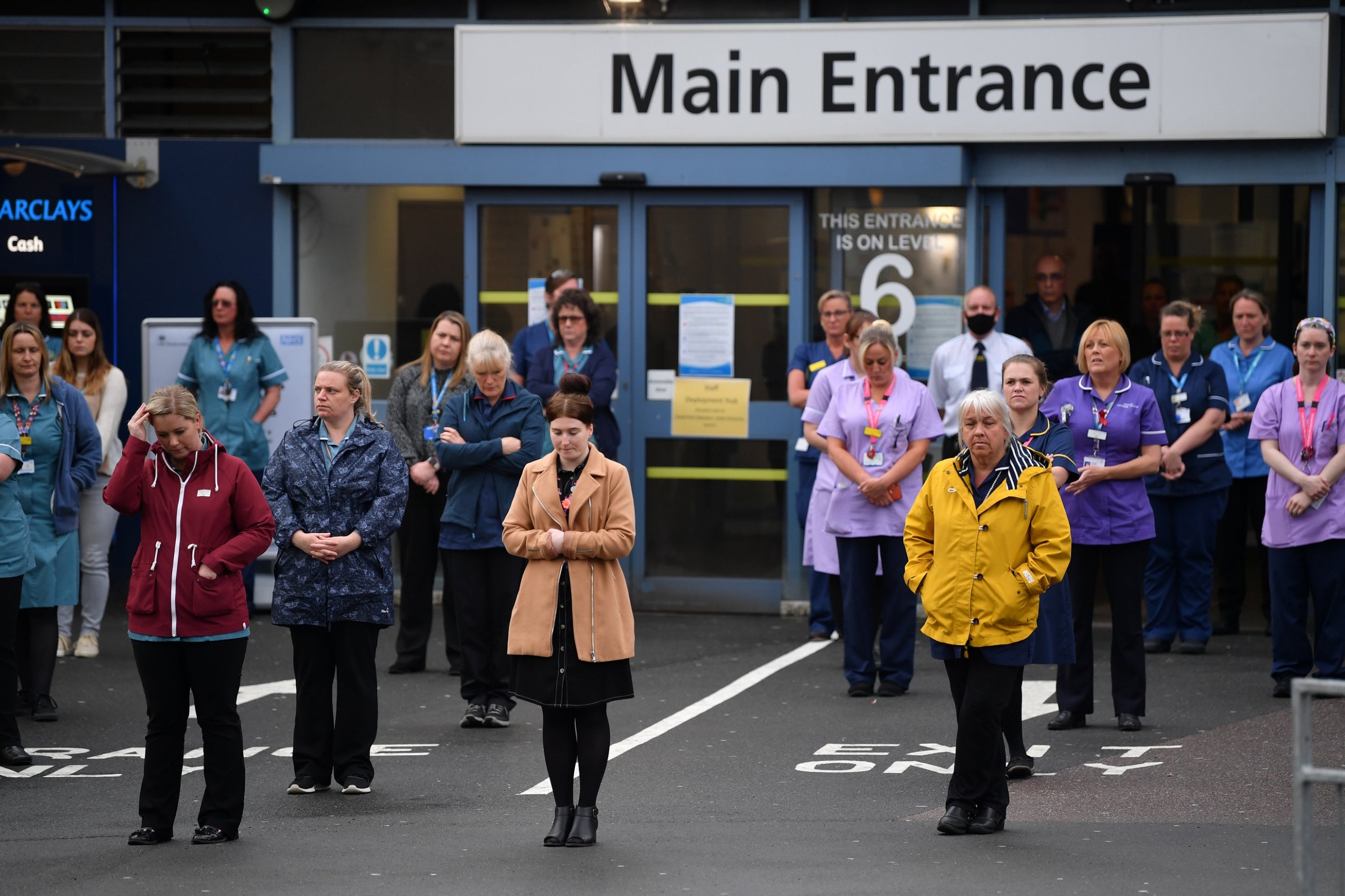
19/30 Plymouth
NHS workers hold a minute’s silence outside the main entrance of Derriford Hospital
Getty
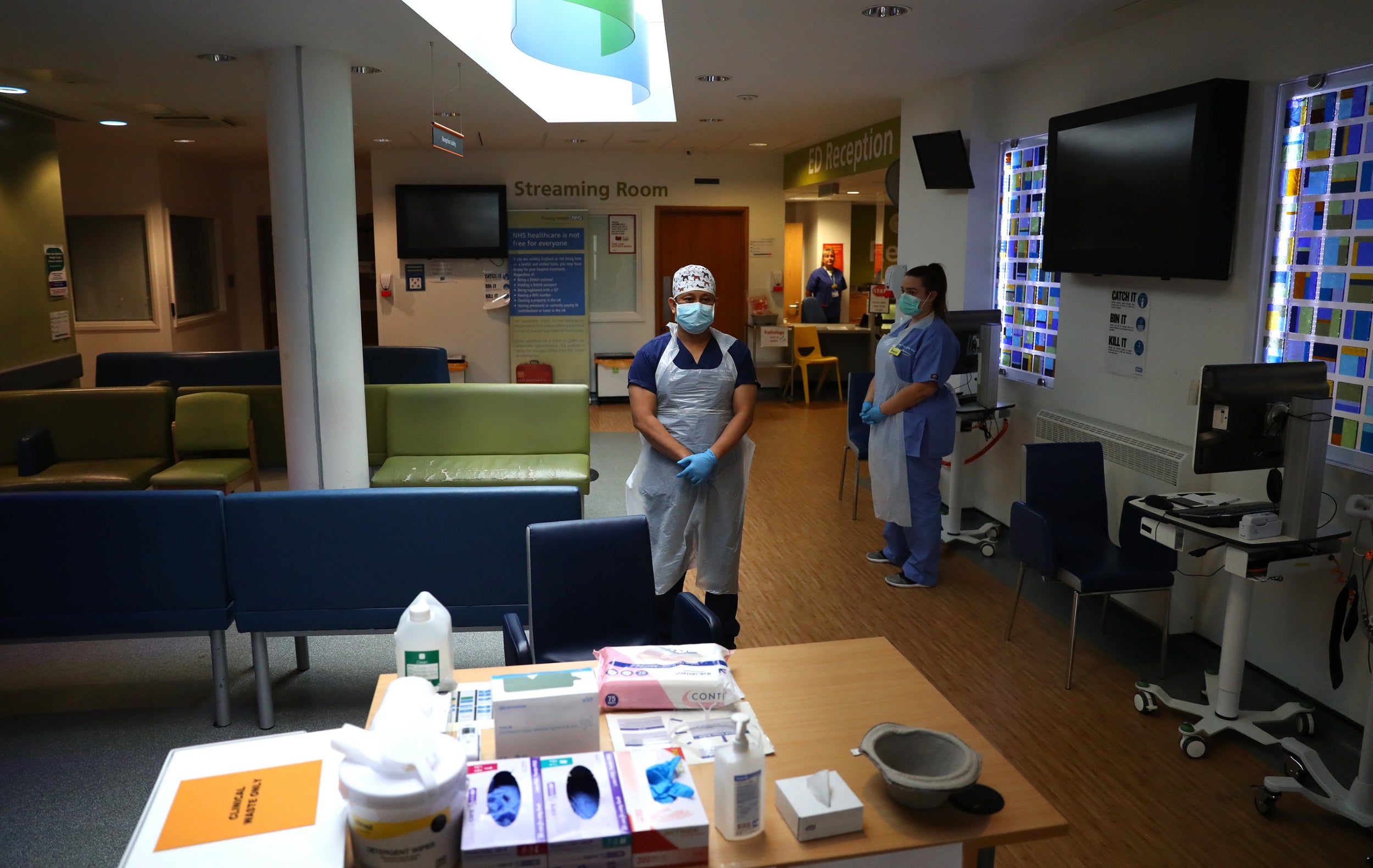
20/30
NHS Frimley Park Hospital staff at the A&E department observe a minute’s silence
Getty
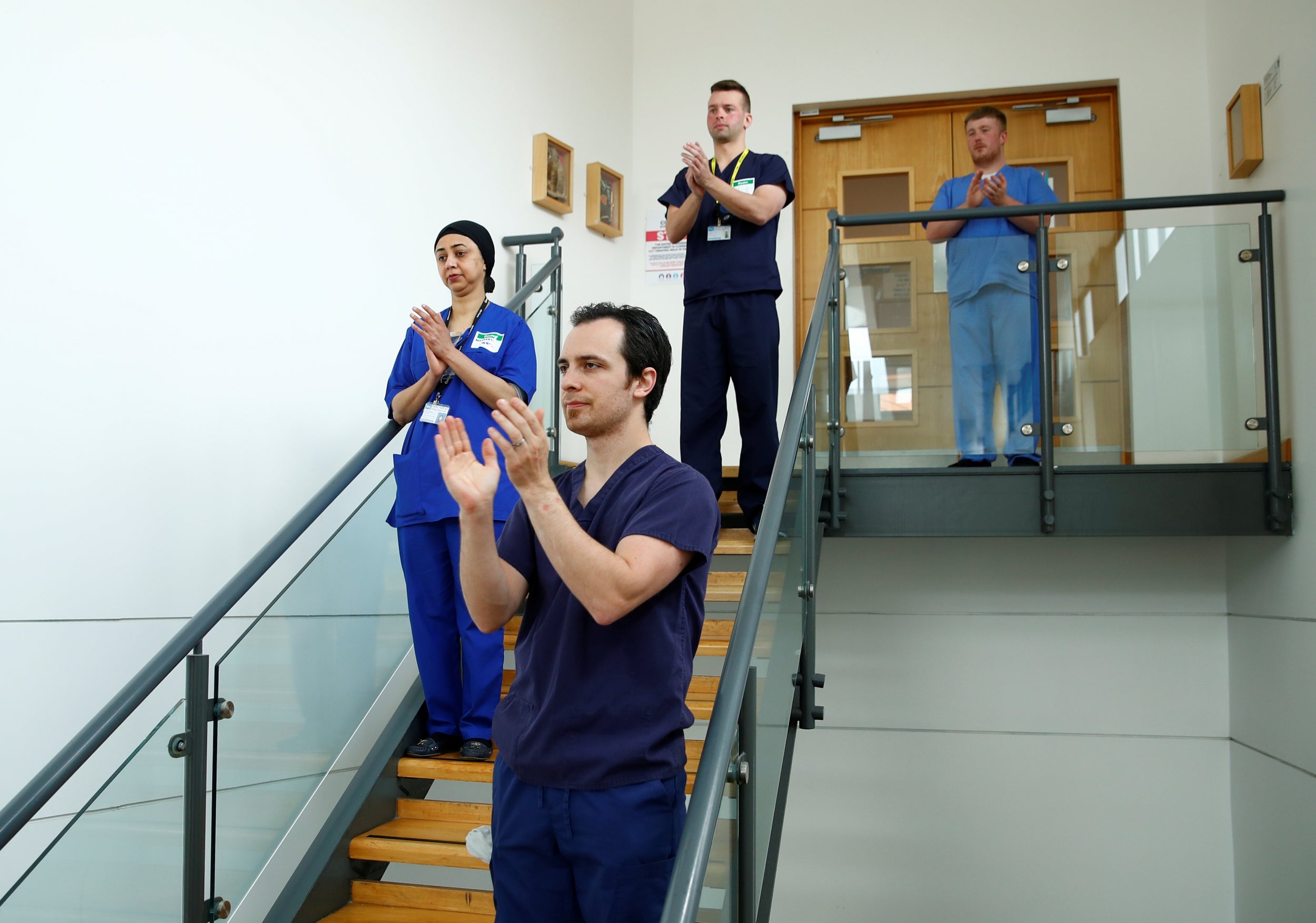
21/30 Mater Infirmorum Hospital
People applaud after a minutes silence in honour of key workers
Reuters
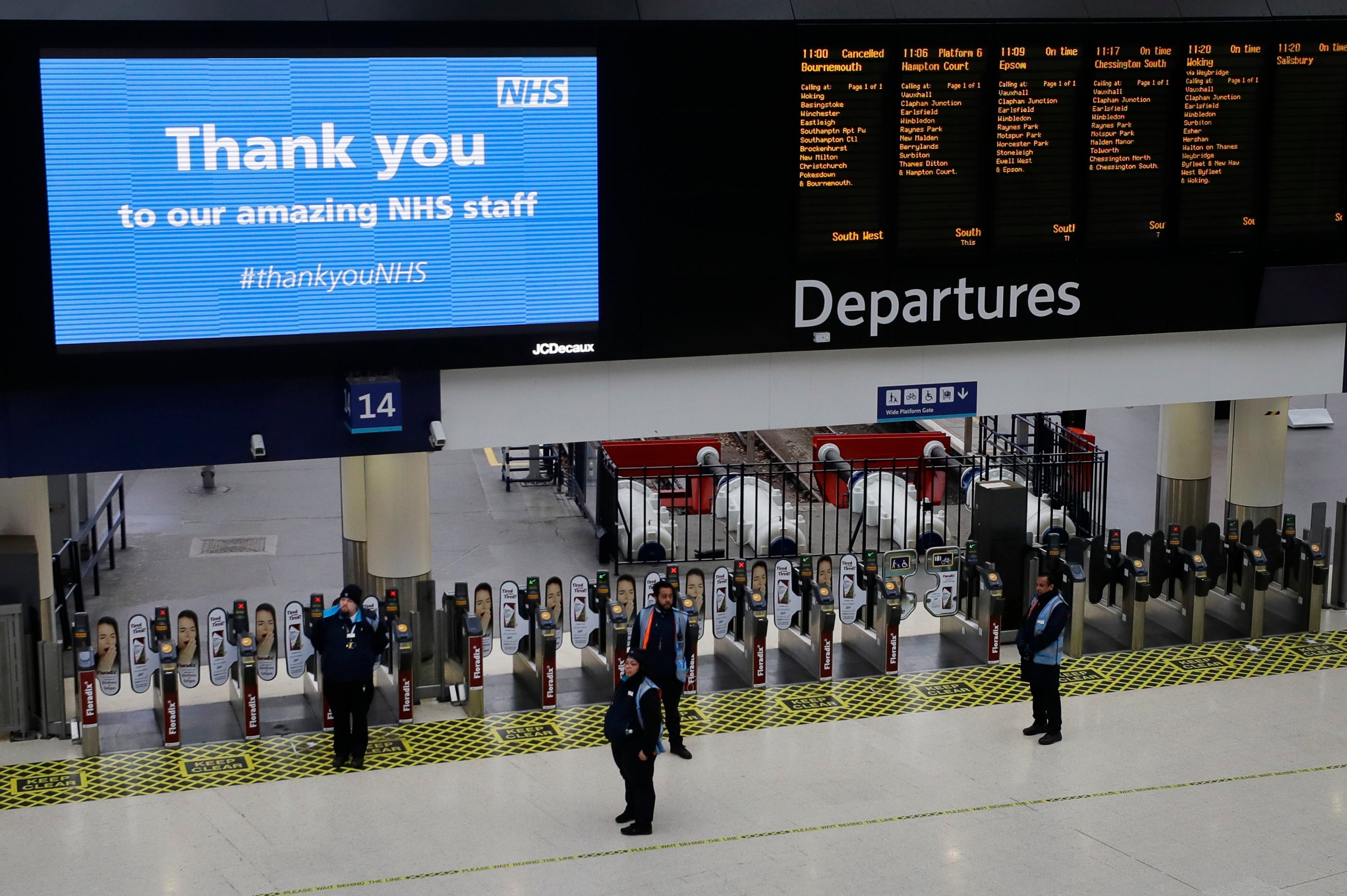
22/30 Waterloo Station, London
AP
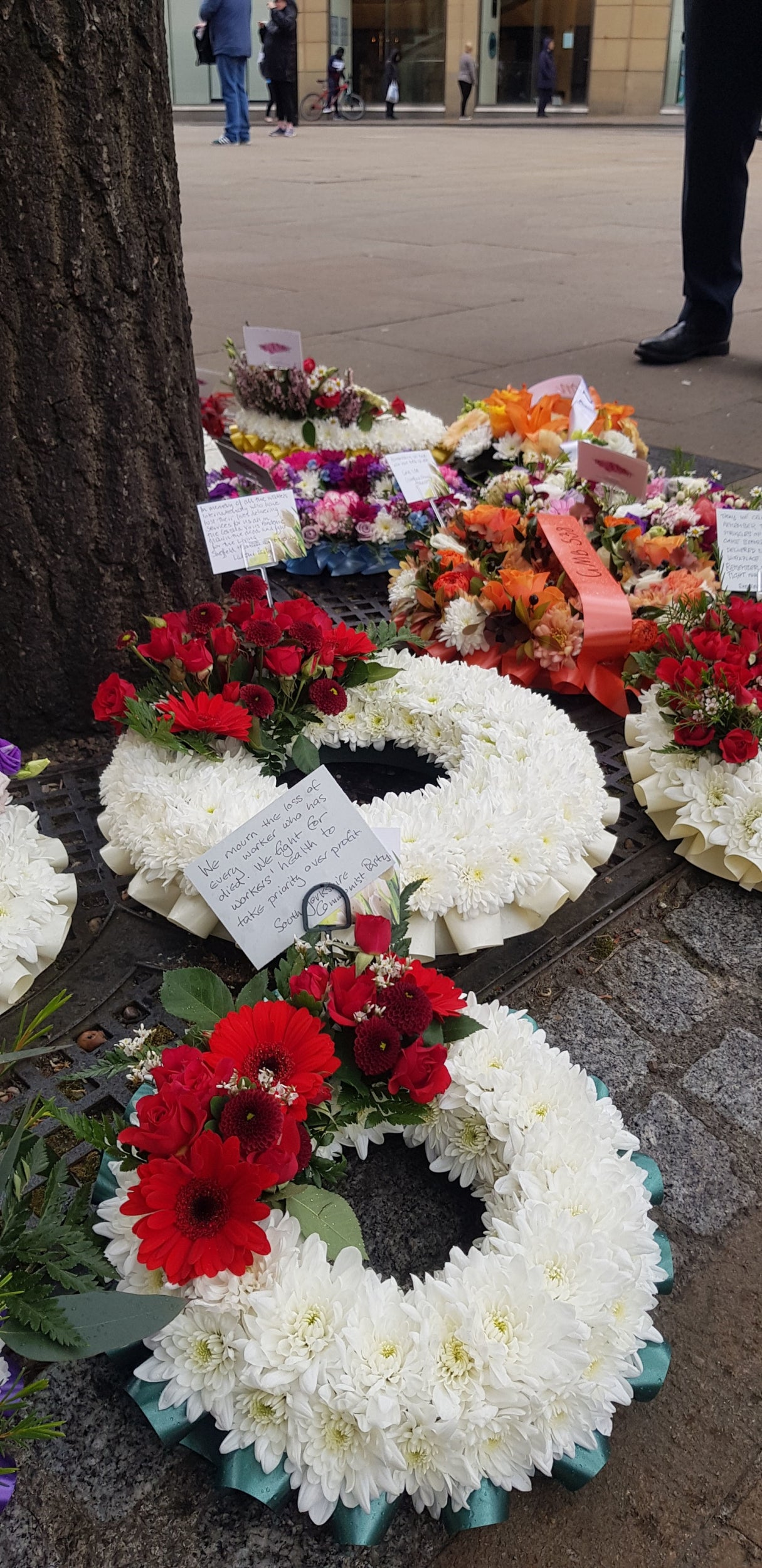
23/30
Wreaths laid outside Sheffield town hall
PA
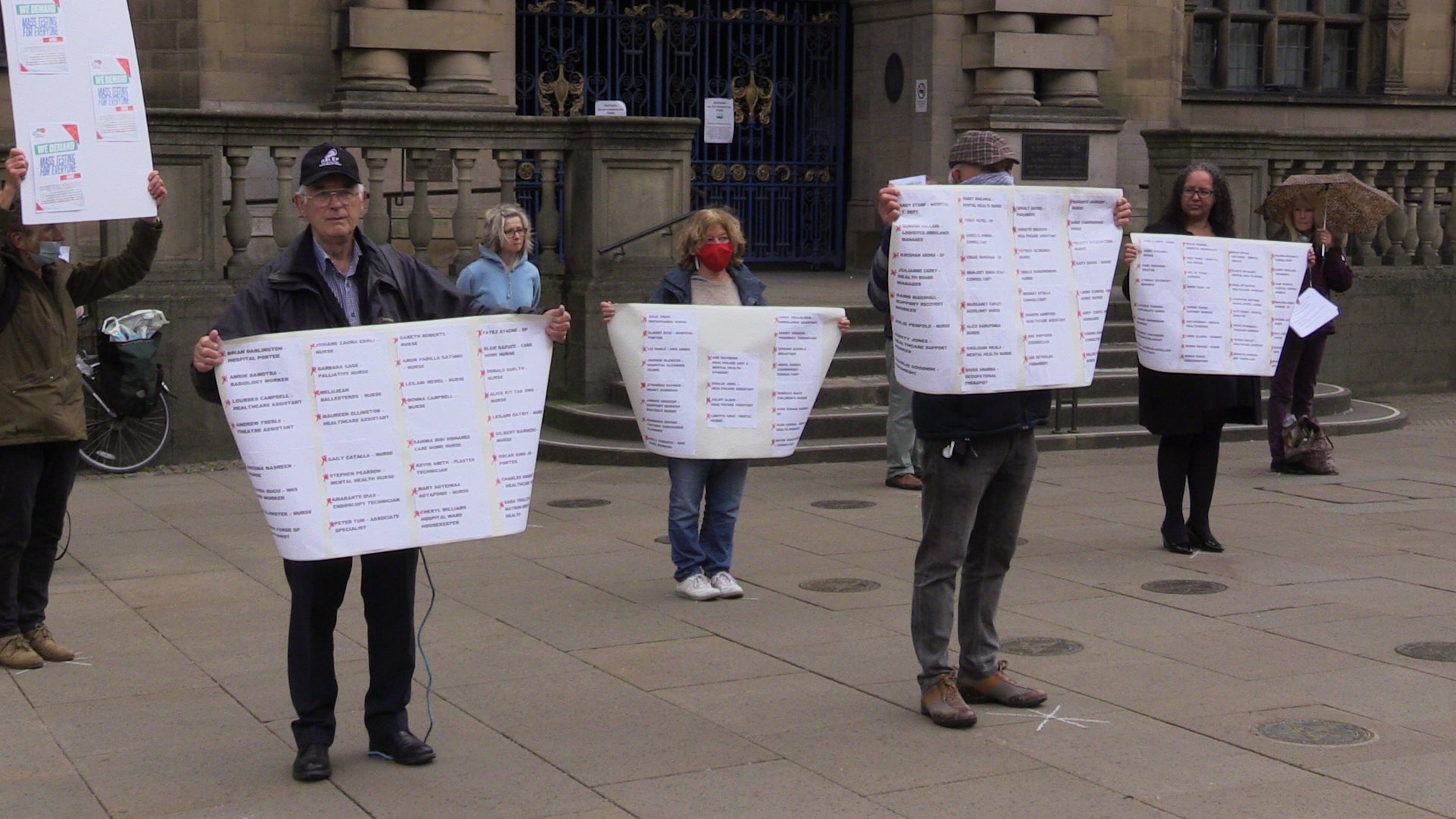
24/30
A group of trade unionists and supporters standing outside Sheffield town hall
PA
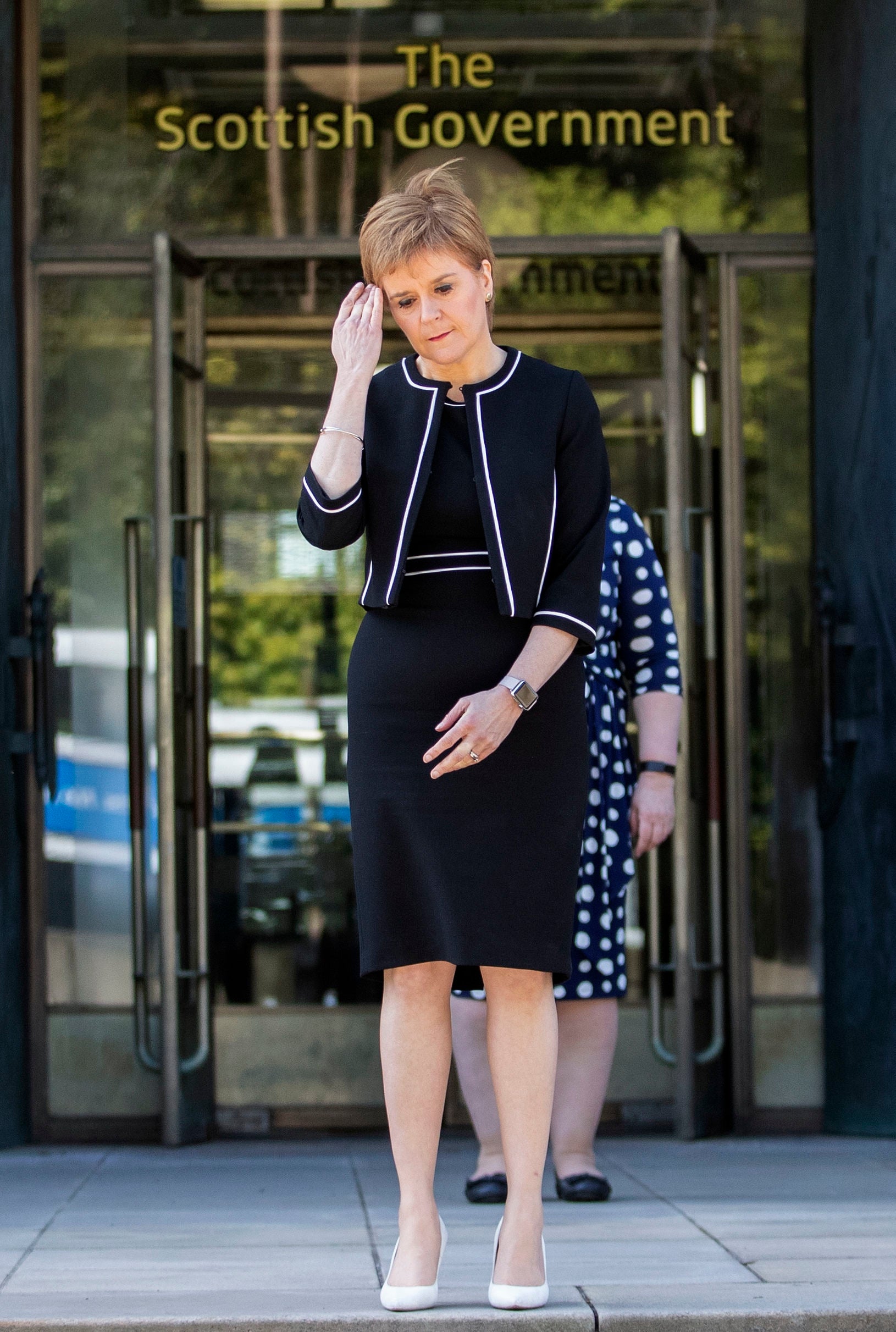
25/30
First Minister Nicola Sturgeon stands outside St Andrew’s House in Edinburgh to observe a minute’s silence in tribute to the NHS staff and key workers who have died during the coronavirus outbreak
PA
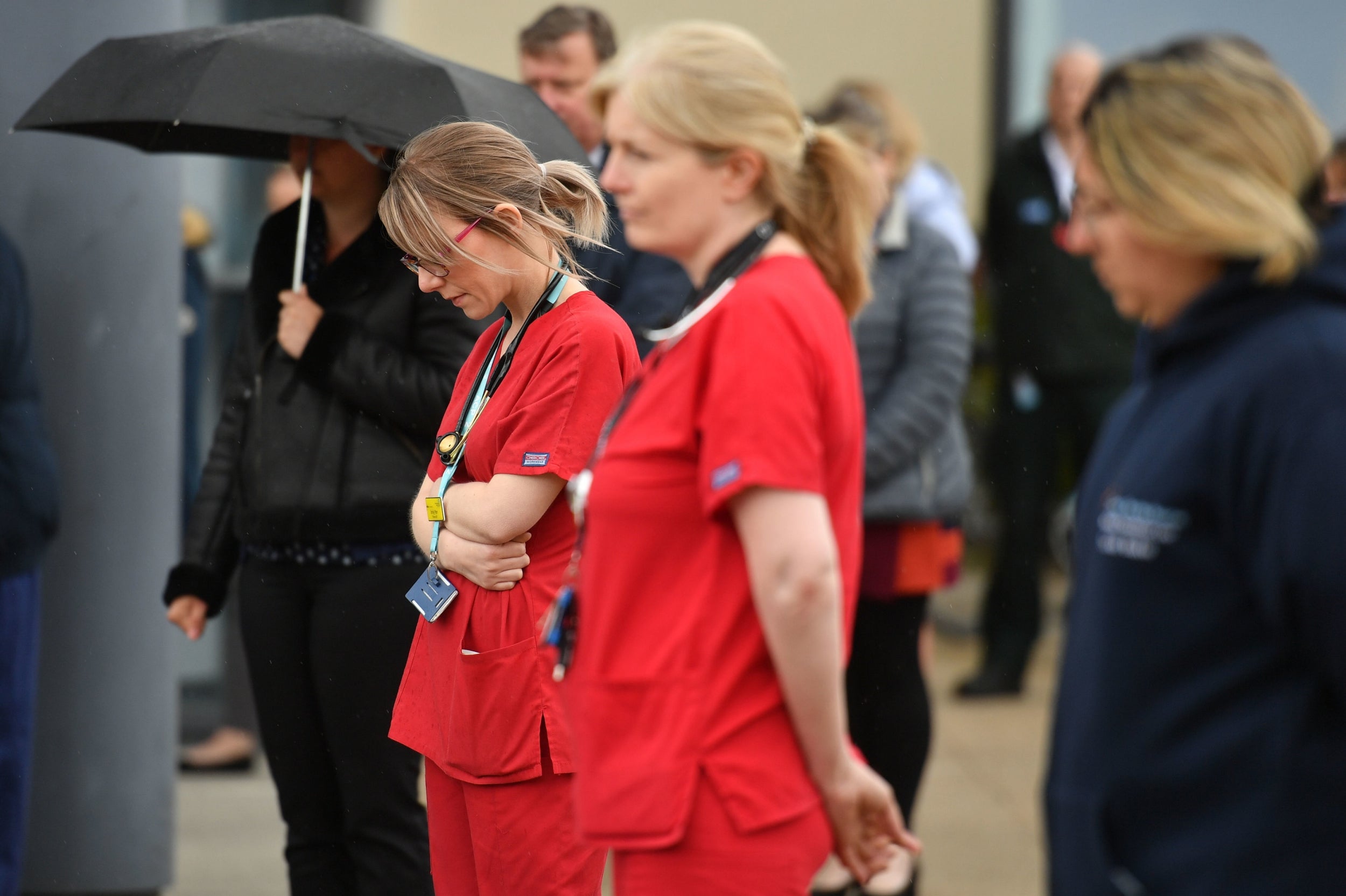
26/30
Staff stand outside the Royal Derby Hospital, during a minutes silence
PA
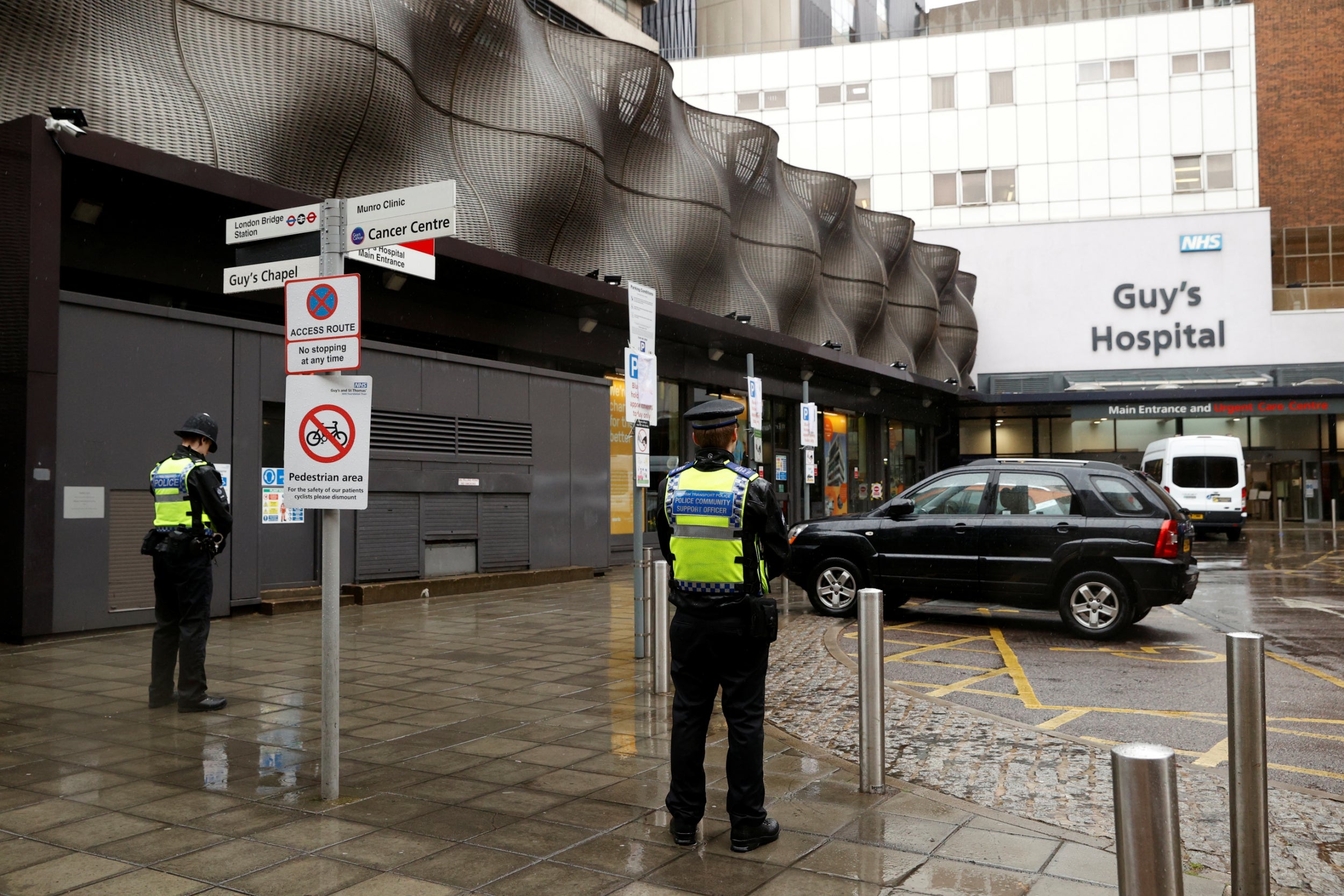
27/30 London
Police officers observe a minutes silence at Guy’s Hospital
Reuters
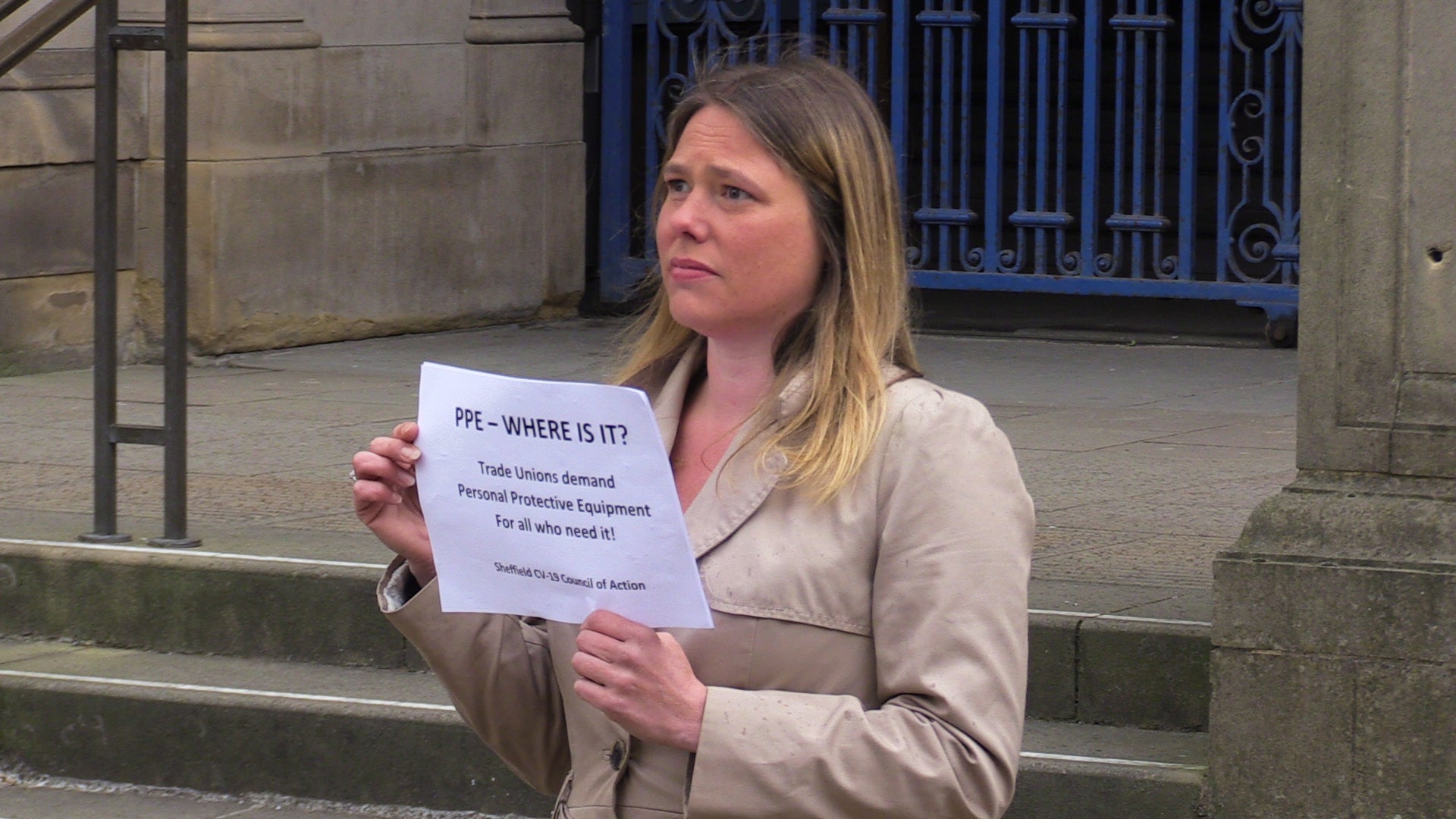
28/30
A woman standing outside Sheffield town hall
PA
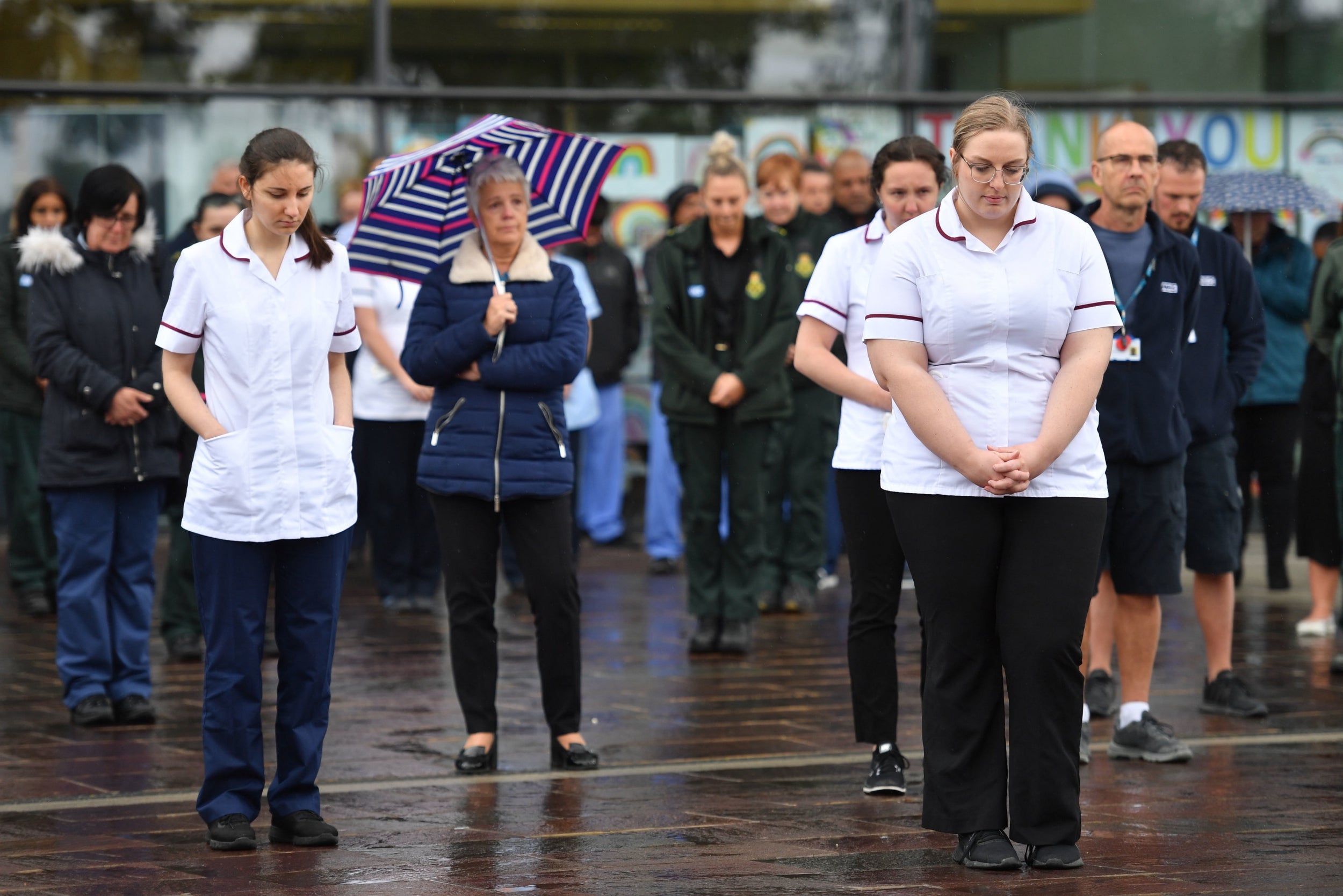
29/30 Royal Derby Hospital
PA
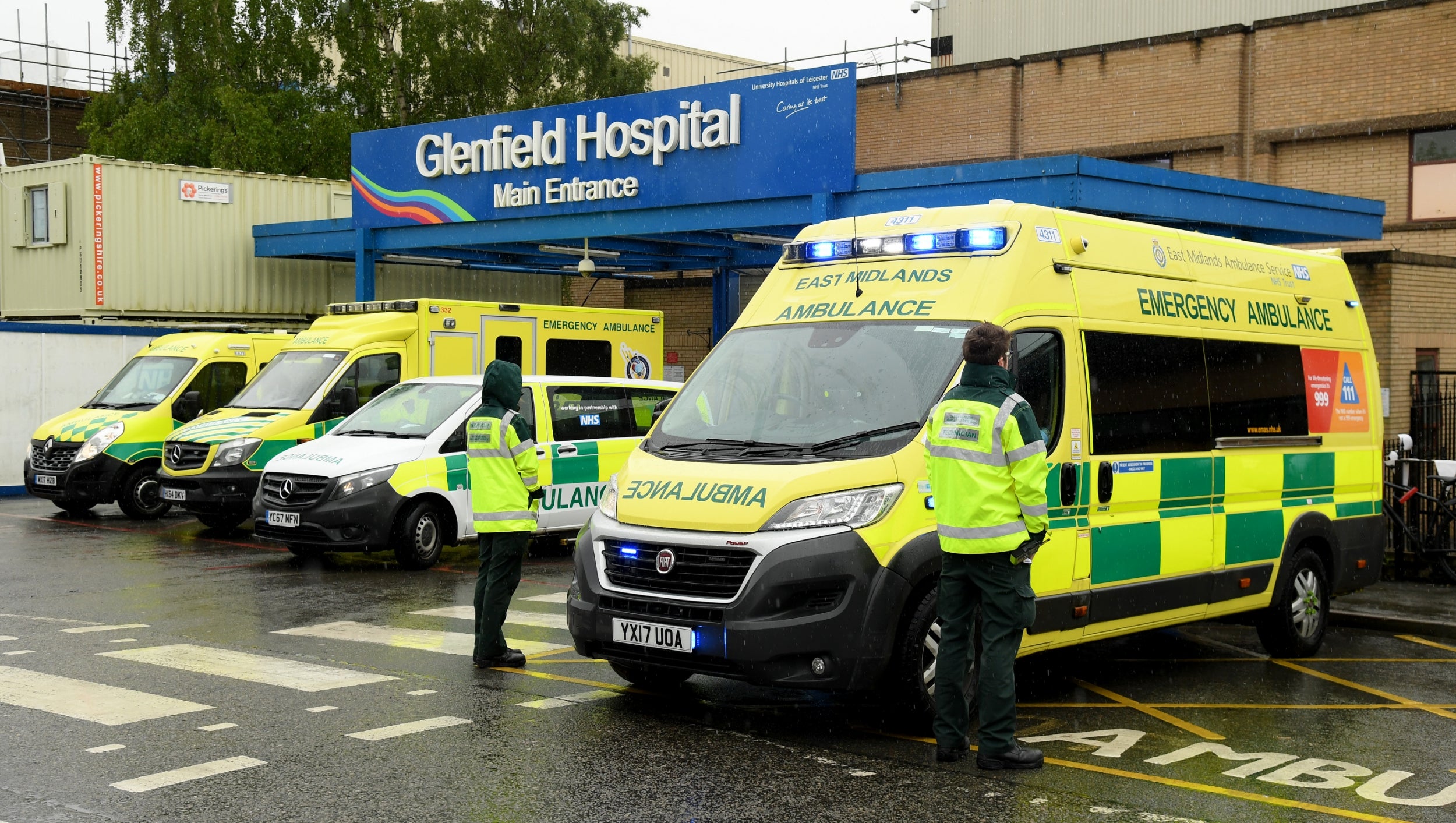
30/30 Leicester,
NHS workers during a minute’s silence outside Glenfield Hospital
Getty

1/30
Staff react outside Salford Royal Hospital in Manchester during a minute’s silence to pay tribute to the NHS staff and key workers who have died during the coronavirus outbreak
PA

2/30
Staff inside Camberwell bus depot in London, during a minute’s silence
PA

3/30
NHS staff at the Mater hospital in Belfast, during a minute’s silence to pay tribute to the NHS staff and key workers who have died during the coronavirus outbreak.
PA

4/30
Shoppers observe a minute’s silence in Tescos in Shoreham
Getty

5/30
Firefighters outside Godstone fire station
PA

6/30 Salford Royal Hospital
Getty

7/30 Salford Royal Hospital
PA

8/30
Hospital workers take part in a protest calling on the British government to provide PPE across Britain for all workers in care, the NHS and other vital public services after a nationwide minute’s silence at University College Hospital in London
AP

9/30
A school children’s poster hanging outside Glenfield Hospital during a minute’s silence
Getty

10/30
A man holds a placard that reads “People’s health before profit” outside St Thomas hospital
Getty

11/30
Staff members applaud outside the Royal Derby Hospital, following a minute’s silence
PA

12/30
Cabinet Secretary Mark Sedwill, Prime minister Boris Johnson and Chancellor of the Exchequer Rishi Sunak, stand inside 10 Downing Street, London, to observe a minutes silence in tribute to the NHS staff and key workers who have died during the coronavirus outbreak
PA

13/30 University College Hospital, London
Hospital workers hold placards with the names of their colleagues who have died from coronavirus as they take part in a protest calling on the British government to provide PPE
AP

14/30
Staff at Waterloo Station in London, stand to observe a minute’s silence, to pay tribute to NHS and key workers who have died with coronavirus
AP

15/30
Medical staff at the Louisa Jordan hospital stand during a UK wide minutes silence to commemorate the key workers who have died with coronavirus in Glasgow
Getty

16/30 London
An NHS worker observes a minute’s silence at Chelsea and Westminster Hospital
Reuters

17/30 Chelsea and Westminster Hospital in London
AFP via Getty

18/30 Belfast, Northern Ireland
NHS staff observe a minutes silence at Mater Infirmorum Hospital
Reuters

19/30 Plymouth
NHS workers hold a minute’s silence outside the main entrance of Derriford Hospital
Getty

20/30
NHS Frimley Park Hospital staff at the A&E department observe a minute’s silence
Getty

21/30 Mater Infirmorum Hospital
People applaud after a minutes silence in honour of key workers
Reuters

22/30 Waterloo Station, London
AP

23/30
Wreaths laid outside Sheffield town hall
PA

24/30
A group of trade unionists and supporters standing outside Sheffield town hall
PA

25/30
First Minister Nicola Sturgeon stands outside St Andrew’s House in Edinburgh to observe a minute’s silence in tribute to the NHS staff and key workers who have died during the coronavirus outbreak
PA

26/30
Staff stand outside the Royal Derby Hospital, during a minutes silence
PA

27/30 London
Police officers observe a minutes silence at Guy’s Hospital
Reuters

28/30
A woman standing outside Sheffield town hall
PA

29/30 Royal Derby Hospital
PA

30/30 Leicester,
NHS workers during a minute’s silence outside Glenfield Hospital
Getty
“And I think one of the things that we fear, as we hopefully bring the incidence of infections and the number of people who are infected every day right down to very low levels, is that infection will disappear into parts of our communities that are really, really hard to reach.
“It’s incumbent on all of us, including our scientists, to find ways that we can make sure that we can track the ongoing spread of infection amongst every part of our society.”
She was responding to a question from community volunteer Bren McInerney, who was chosen from members of the public to take part in the daily conference.
Mr McInerney, from Gloucester, asked how Britain can ensure that as it emerges from the Covid-19 outbreak “we address inequalities across community and neighbours and continue to invest and empower local communities to thrive”.
Mr Raab told him that the pandemic had been a “timely reminder” of the importance of the “levelling up” agenda set out by Mr Johnson in last year’s general election.
The latest news on Brexit, politics and beyond direct to your inbox
And he added: “One of the things that we found with coronavirus is that hasn’t discriminated. We’ve got the prime minister who’s been laid low with it. We’ve got people all across the country, no-one has been impervious to this virus.
“And I think it’s also taught us to appreciate those key workers that I mentioned, not just those in the NHS and care homes who obviously do an amazing job, but also those keeping our supermarkets running, keeping deliveries flowing.”
Mr Raab said the UK must make sure it comes out of the crisis “together as one country” and keeps alive the spirit of “national mission” which allowed it to tackle the coronavirus.
With Mr Johnson expected to set out his roadmap out of lockdown in an address to the nation on Sunday, the foreign secretary warned that the next stage of the recovery “won’t be easy”.
“As we consider the decisions which we will take next, to protect life but also to protect our way of life, it’s now clear that the second phase will be different,” he said.
“We will need to adjust to a ‘new normal’ where we as a society adapt to safe new ways to work, to travel, to interact and to go about our daily lives.
“We have never experienced anything like this first stage of Covid-19 in terms of the scale of the lives lost but also the lockdown it has required.
“As we go forward we want to make sure that the next phase is more comfortable, is more sustainable and prevents lasting damage to jobs and livelihoods.
“But we need to be under no illusions – the next stage won’t be easy.
“If we are going to protect life and preserve our way of life, we must continue to be guided by the scientific advice we receive and make sure that the next steps we take are sure-footed and sustainable.”



